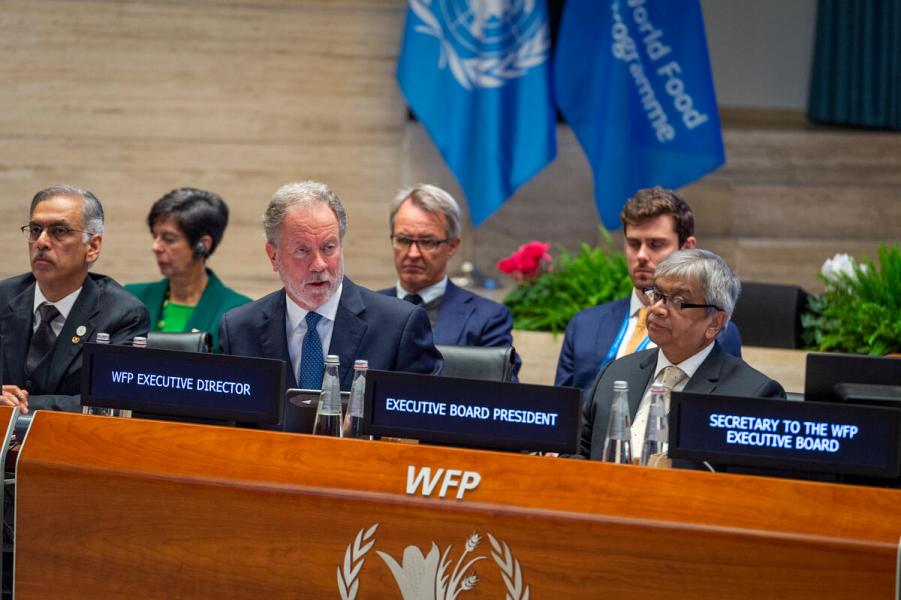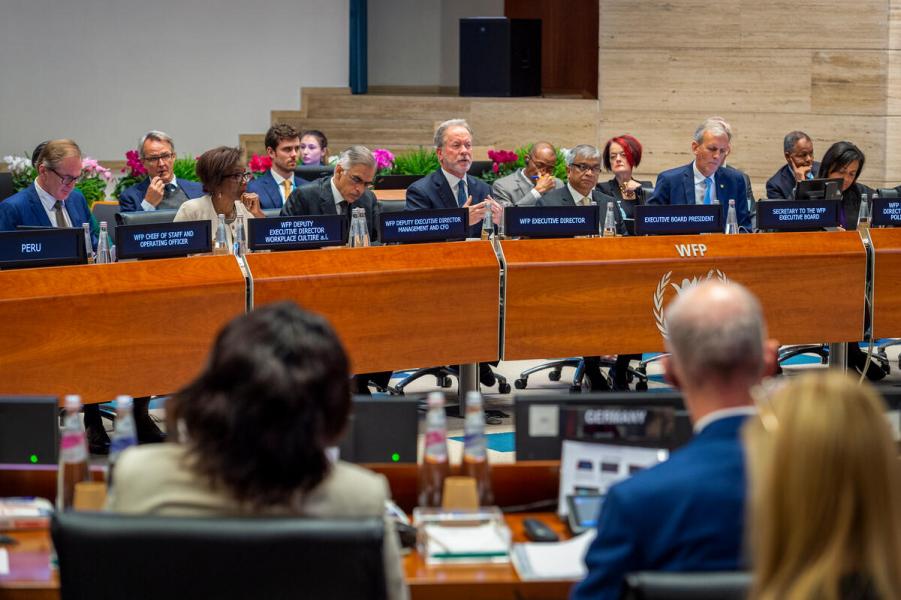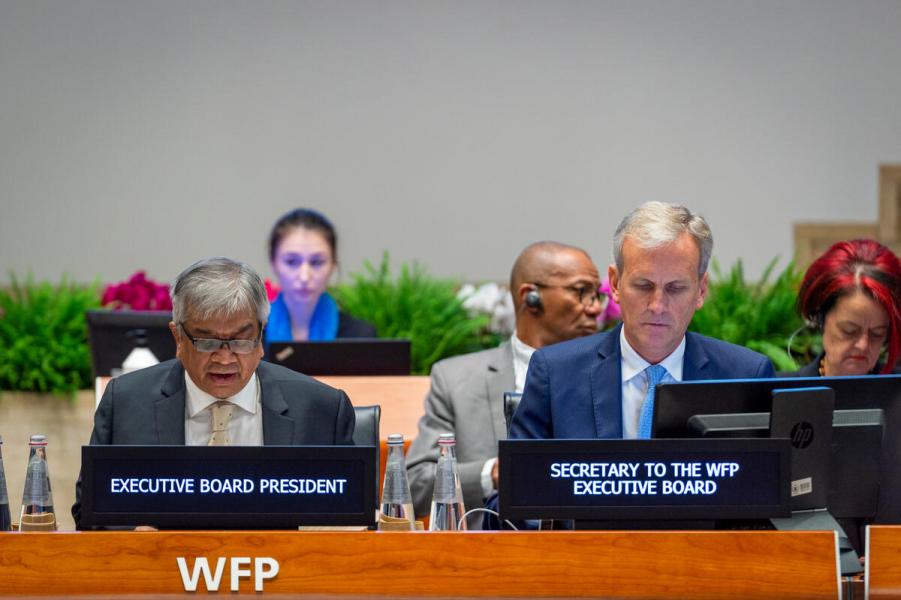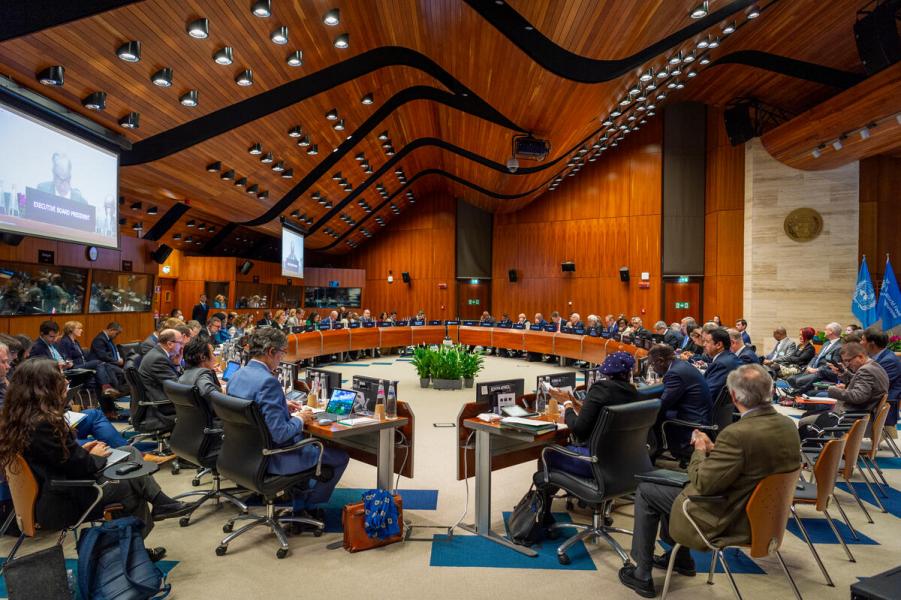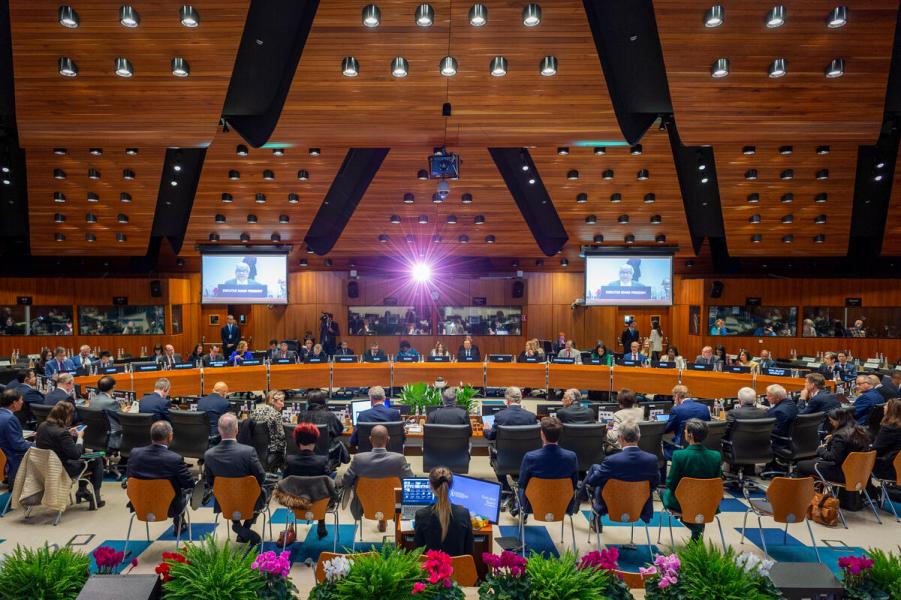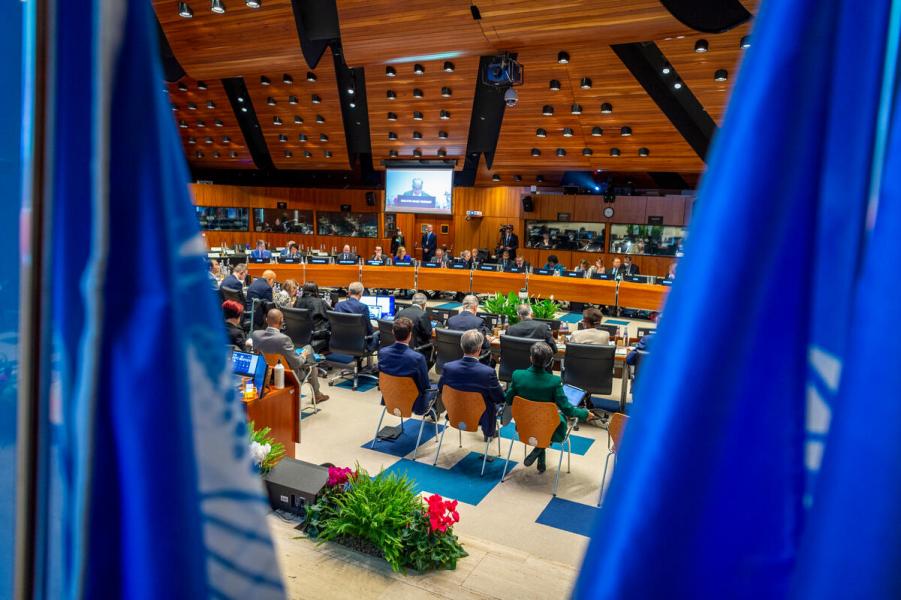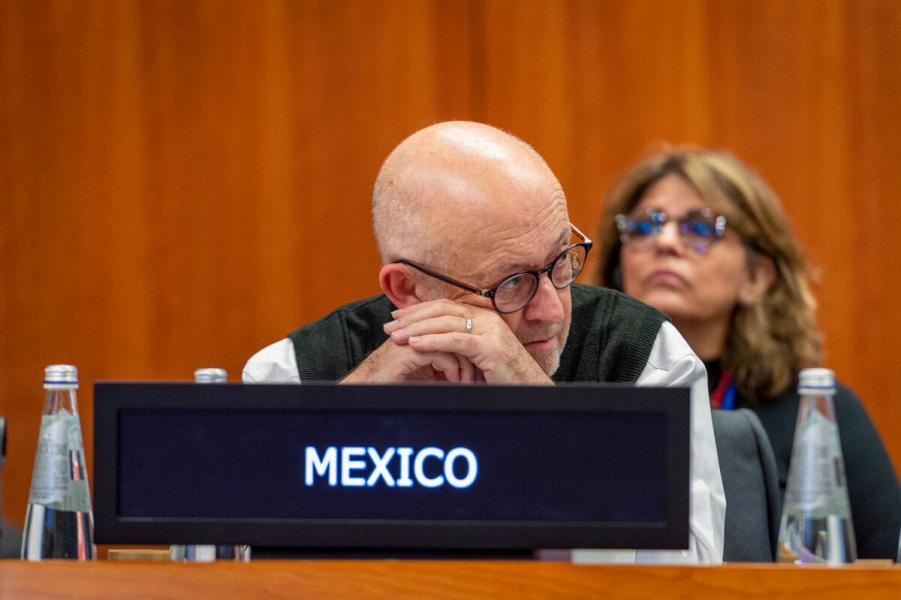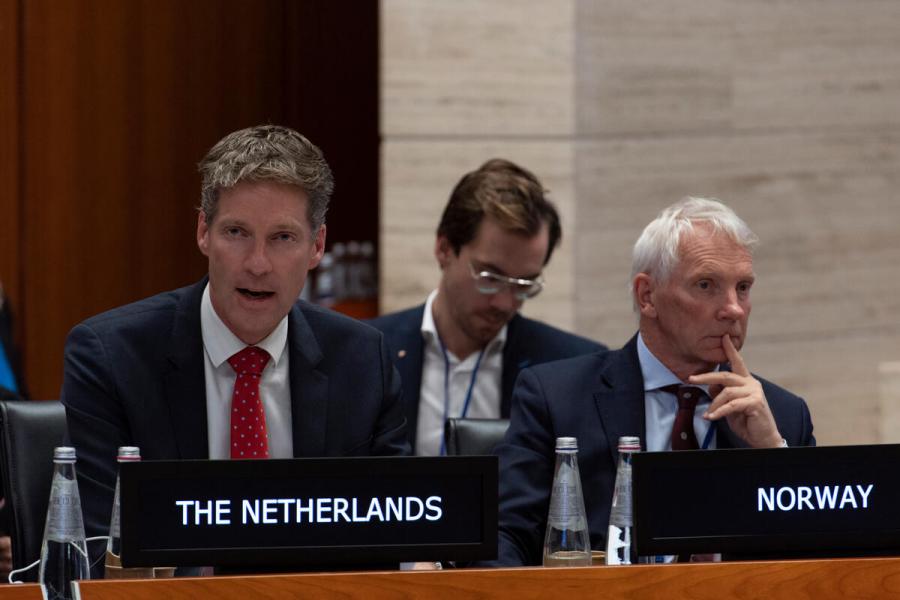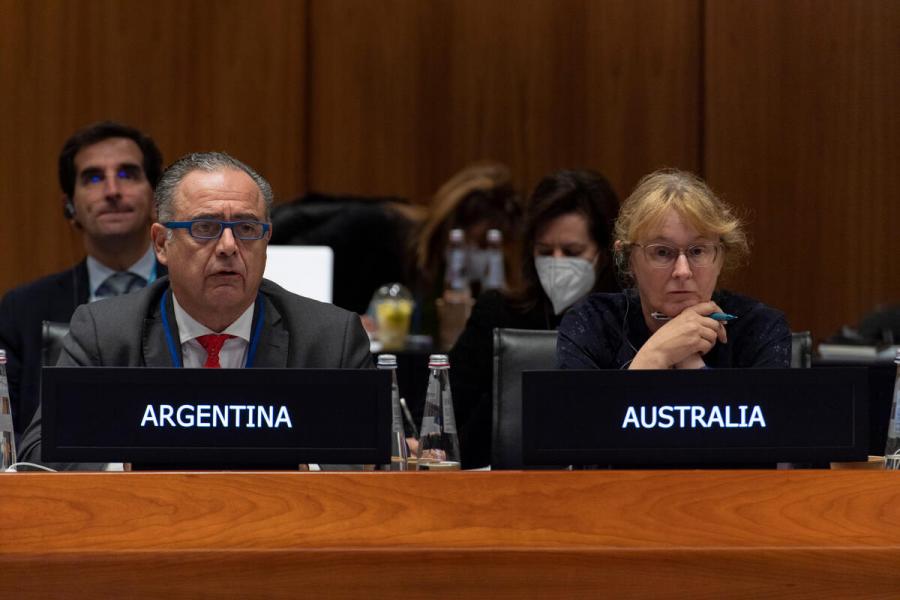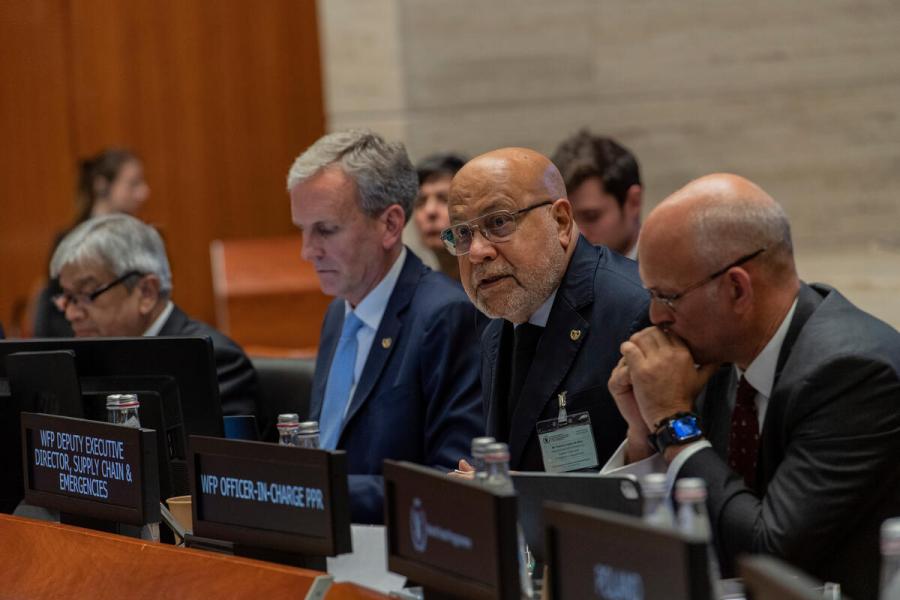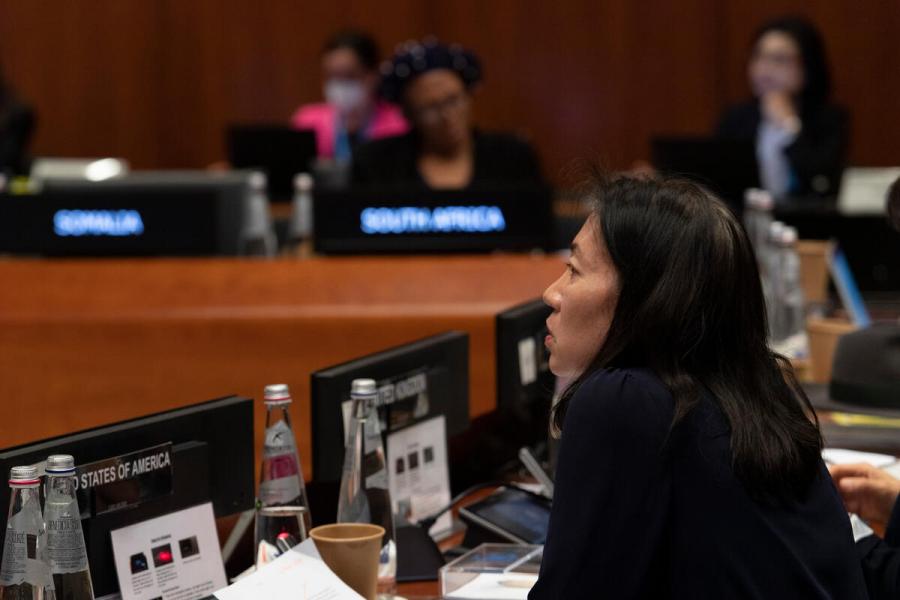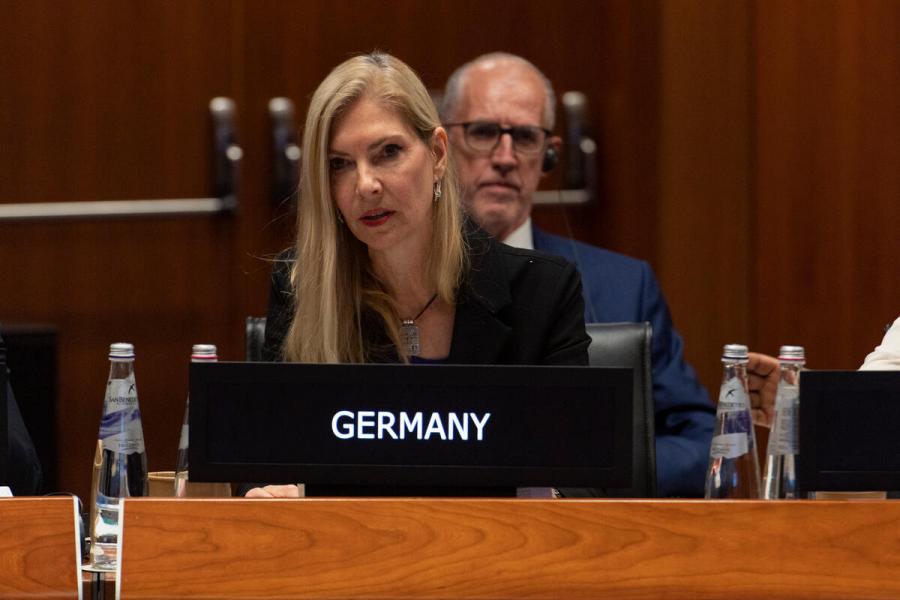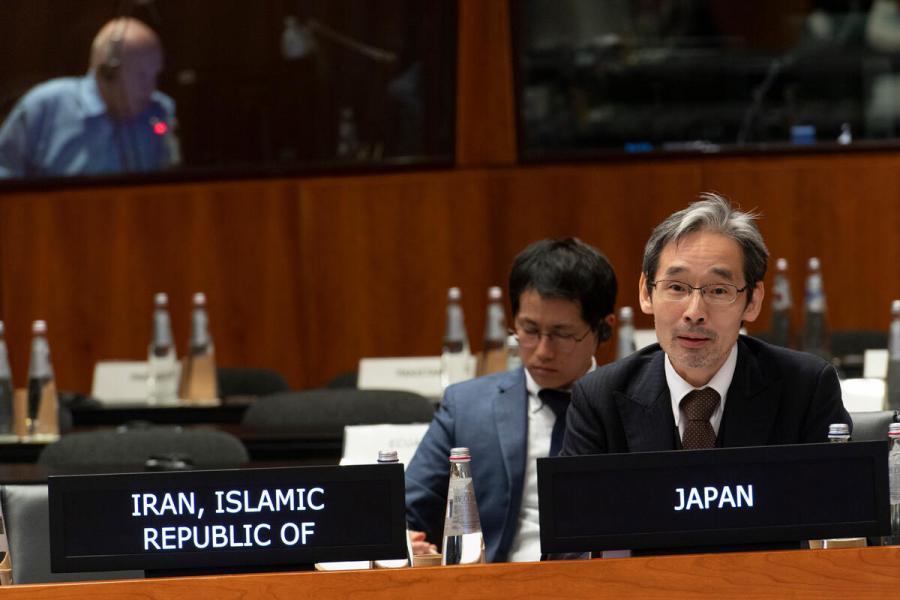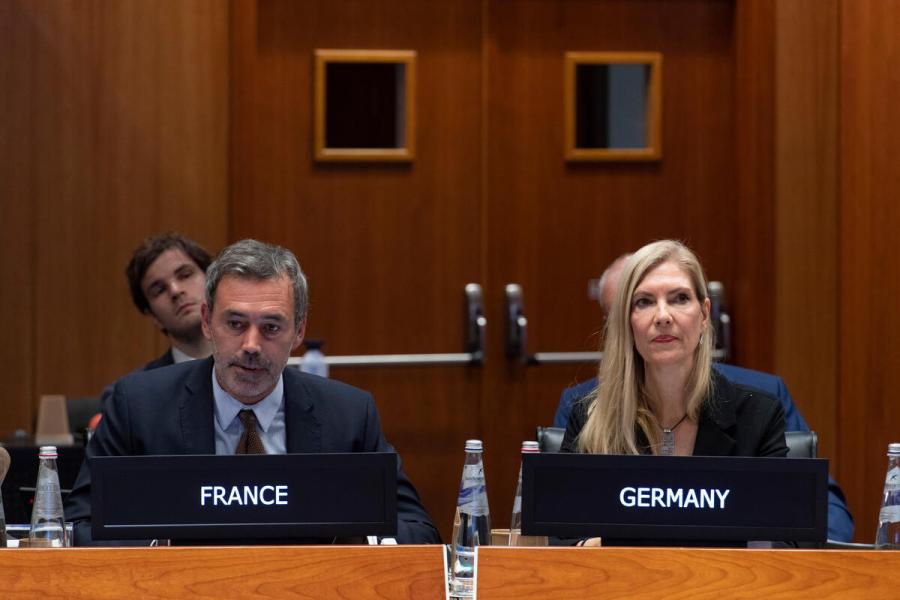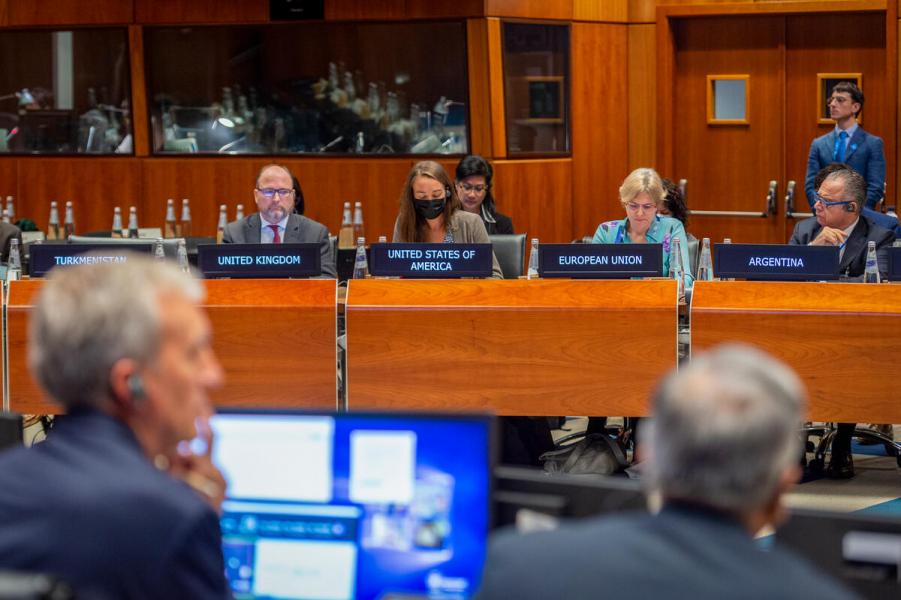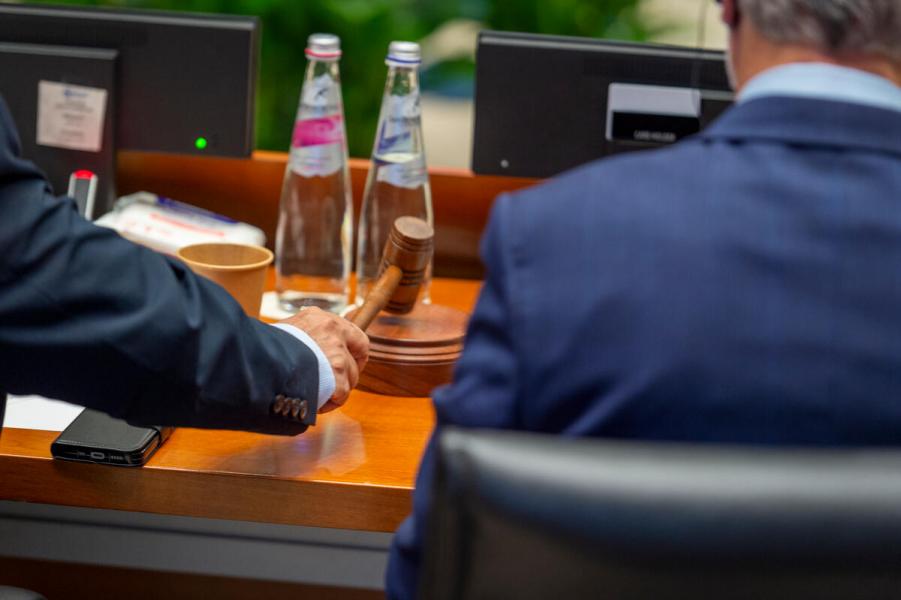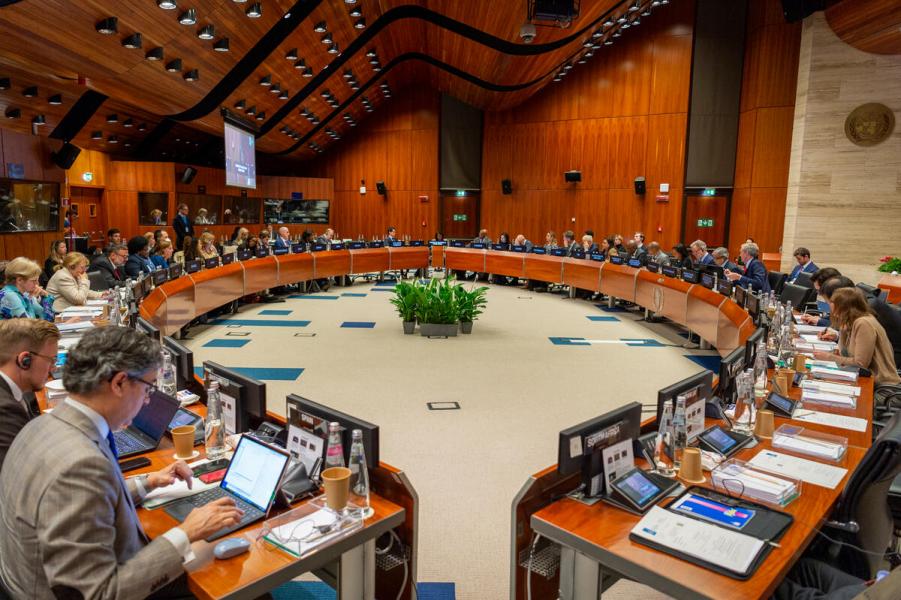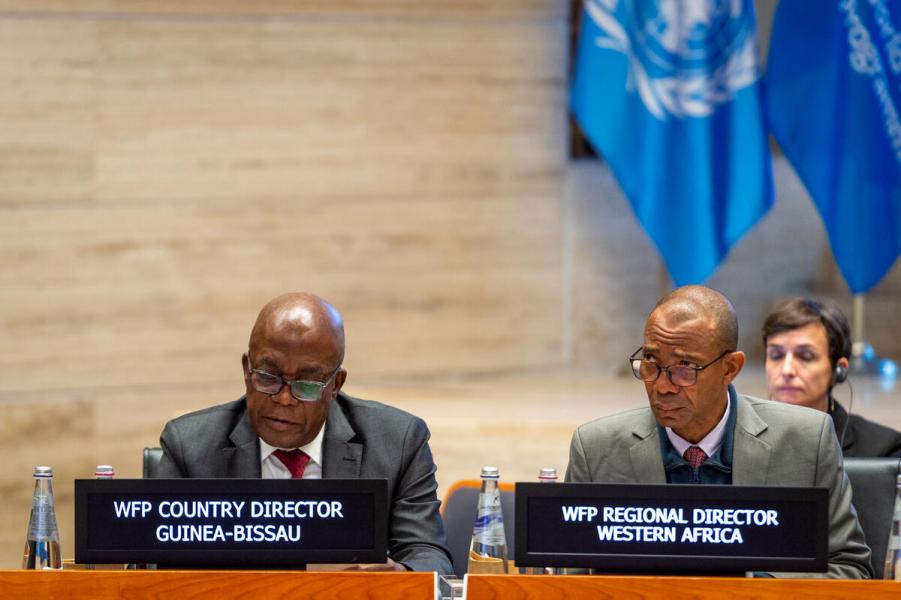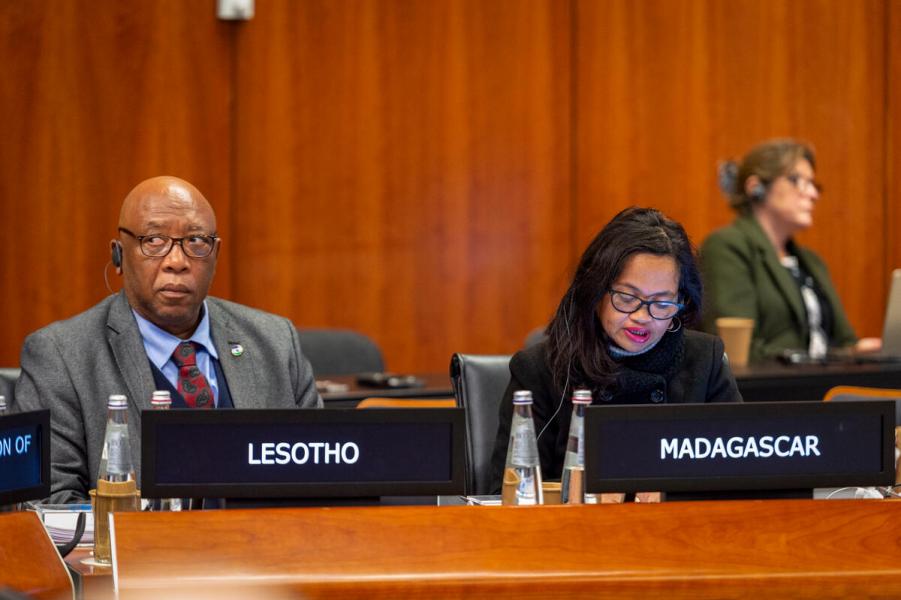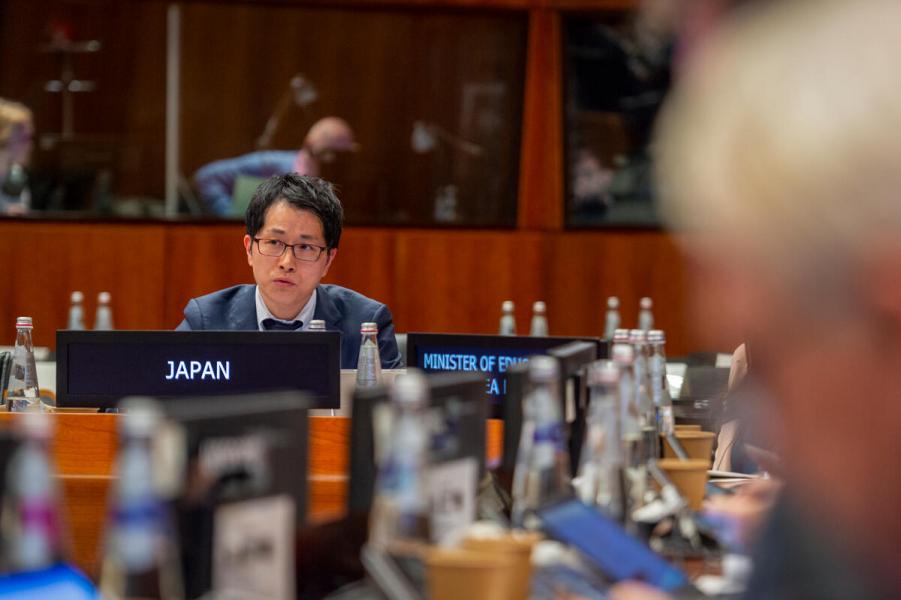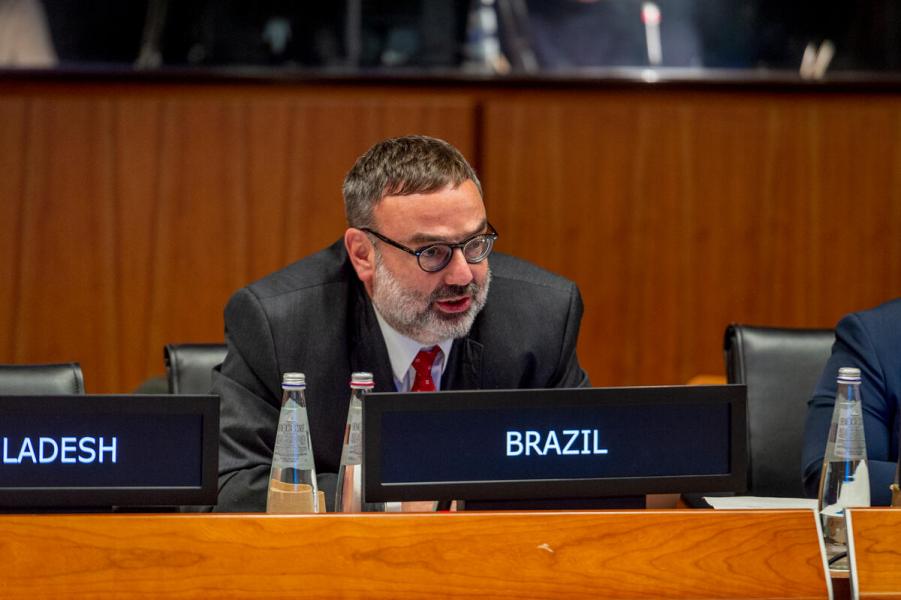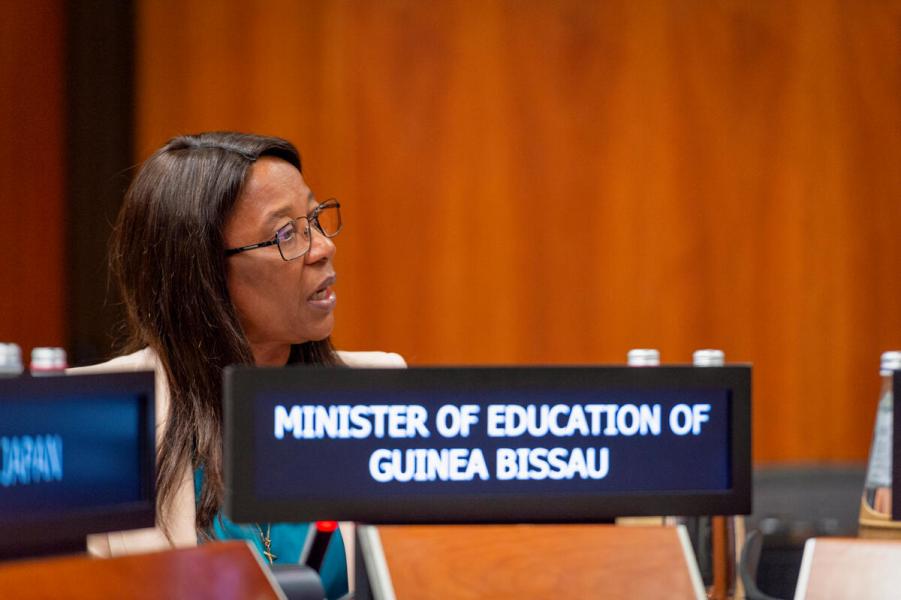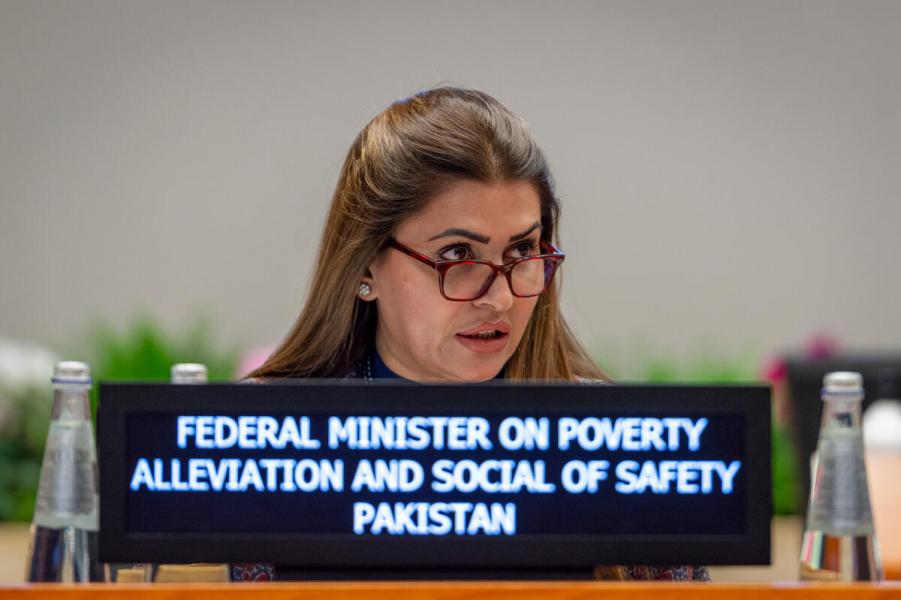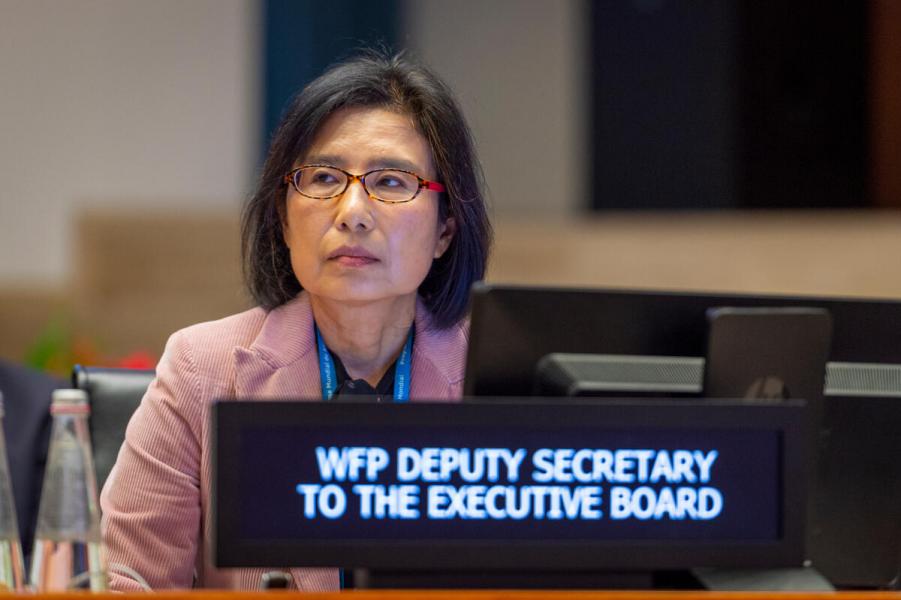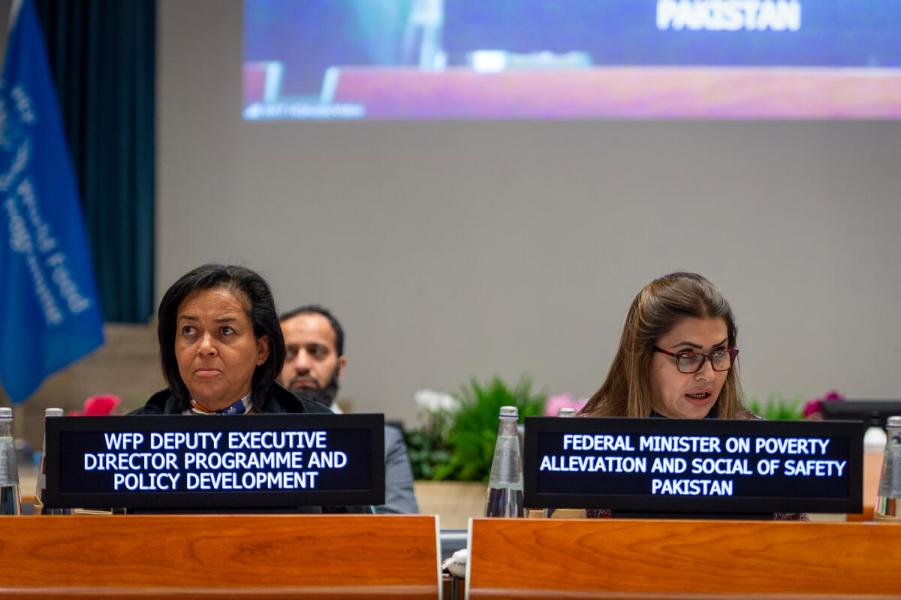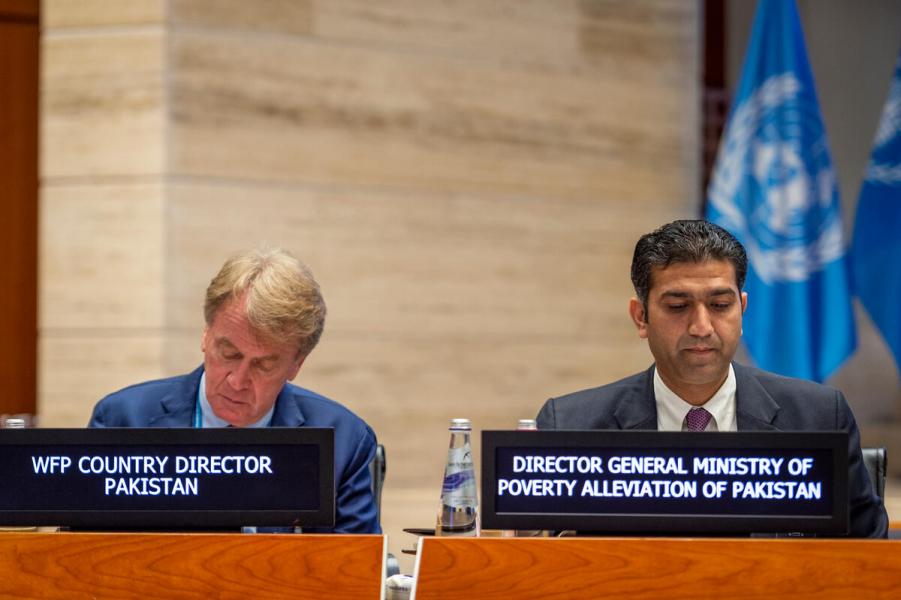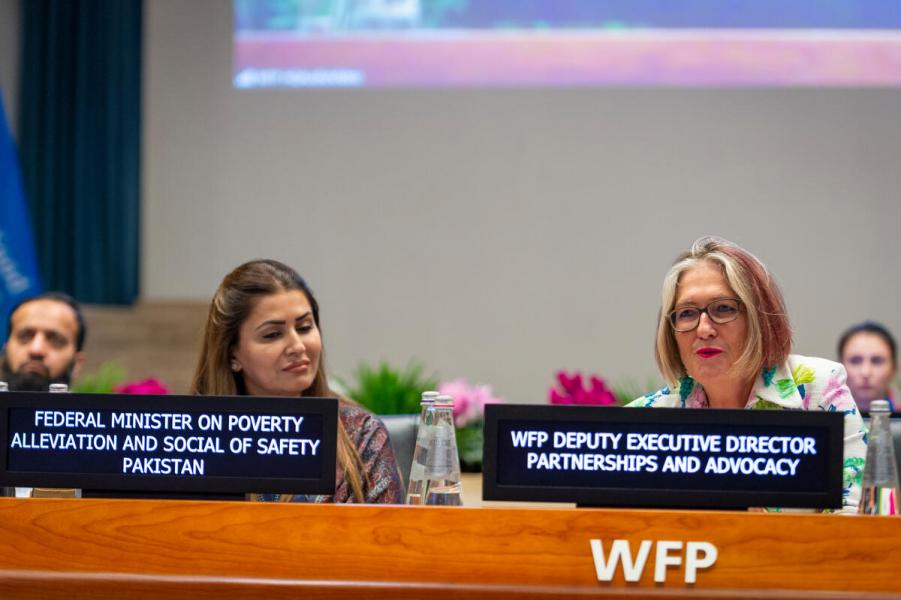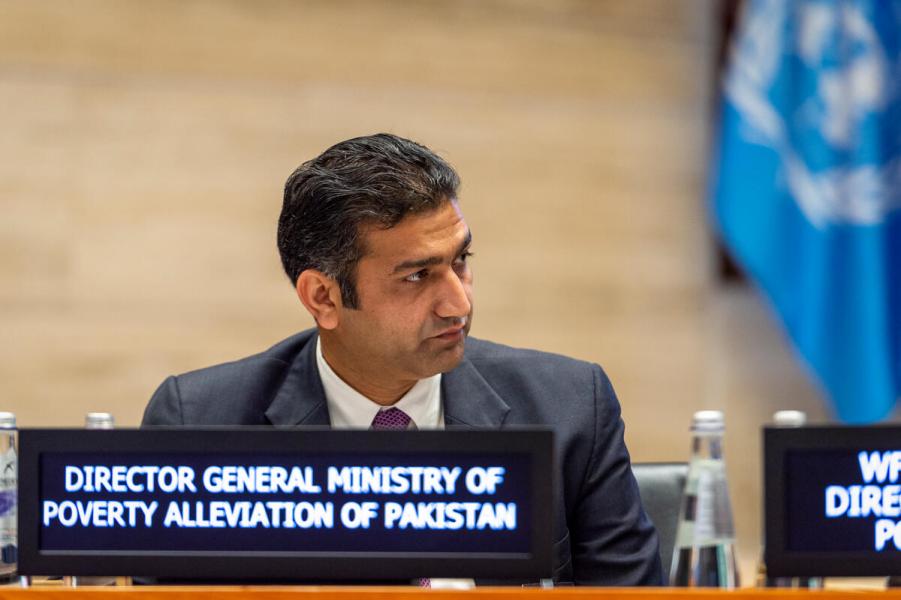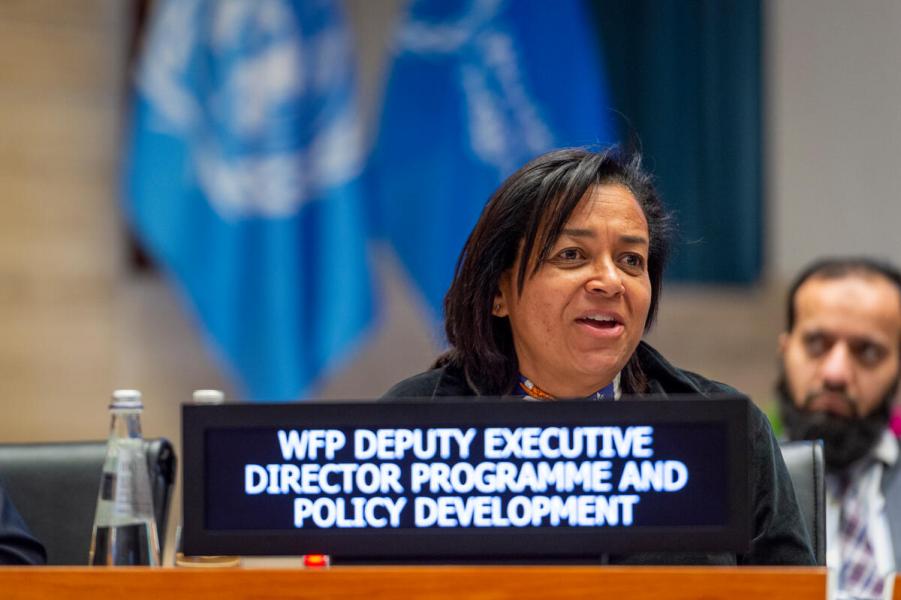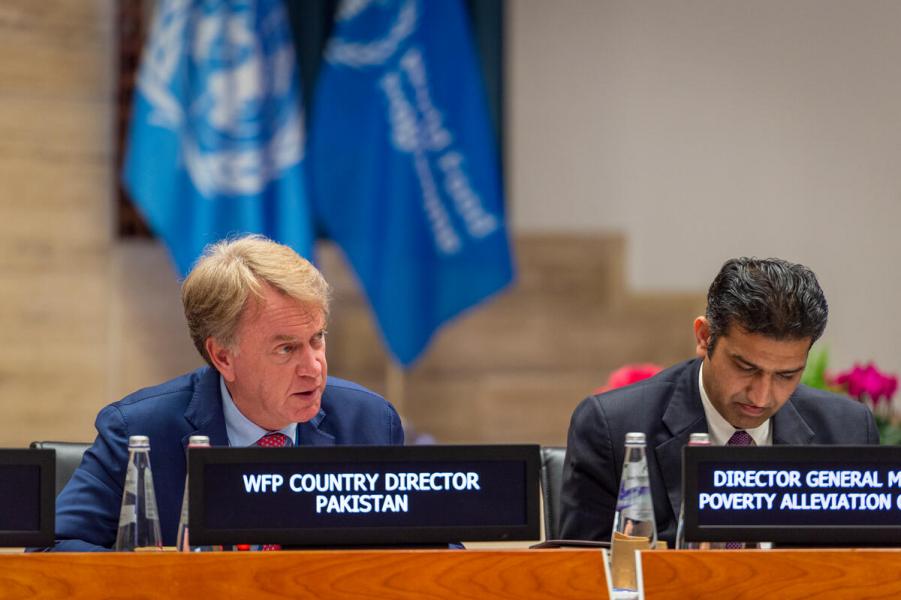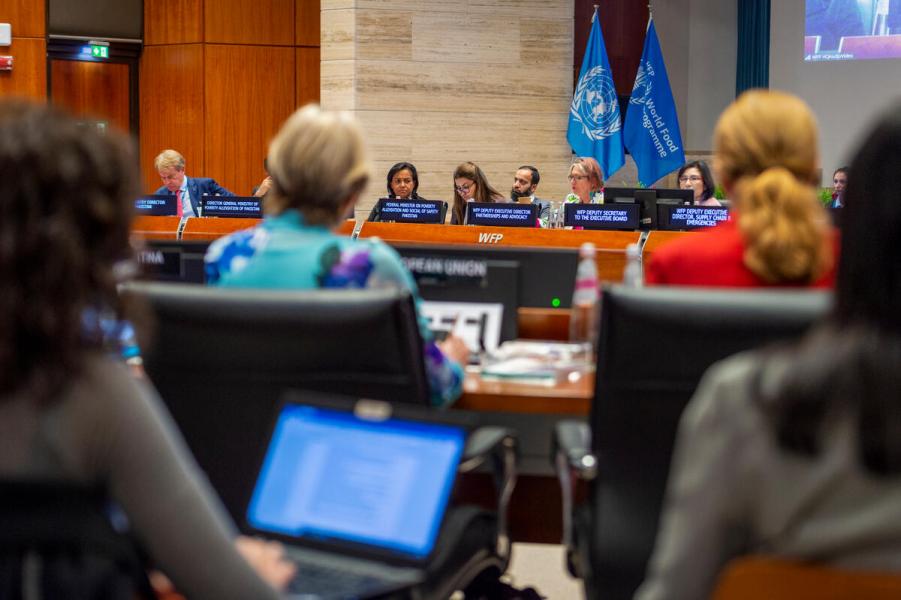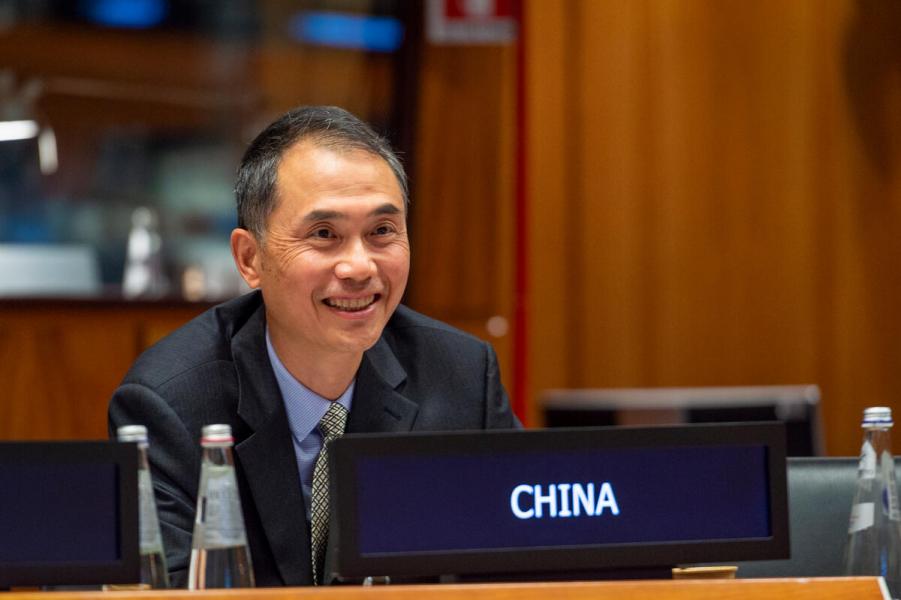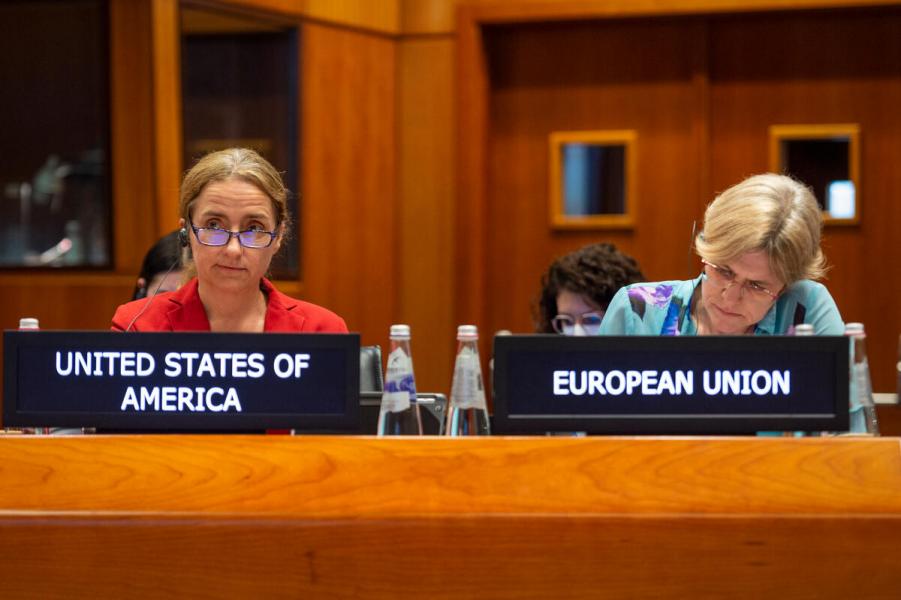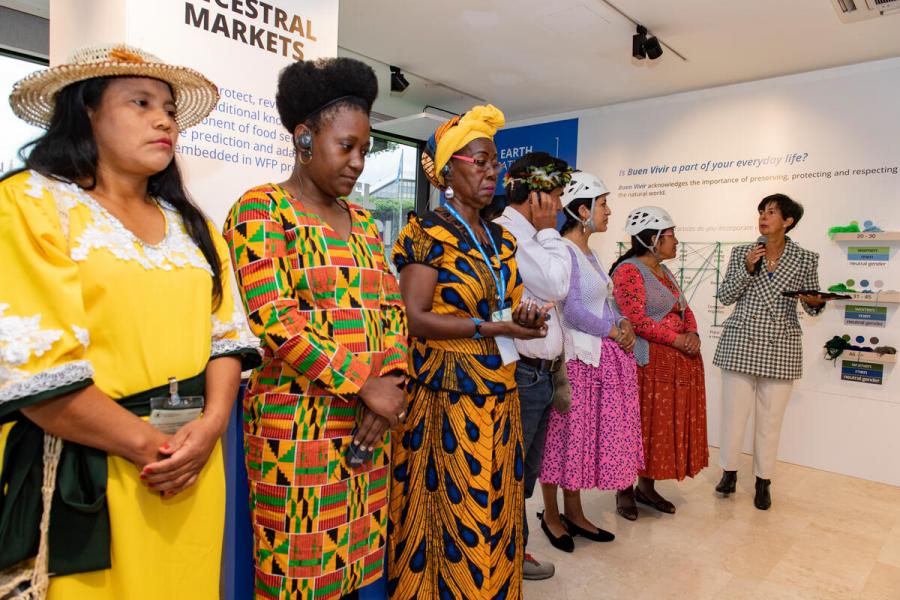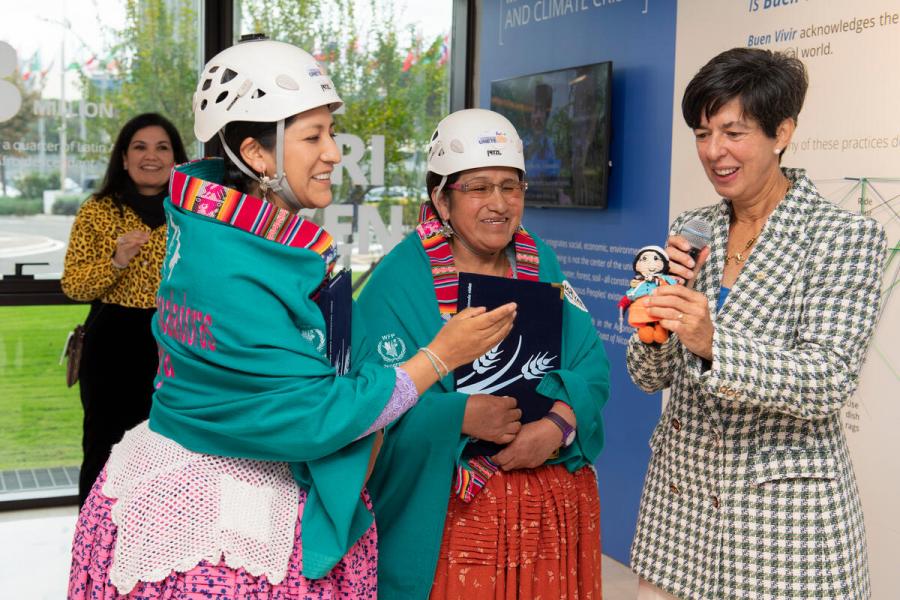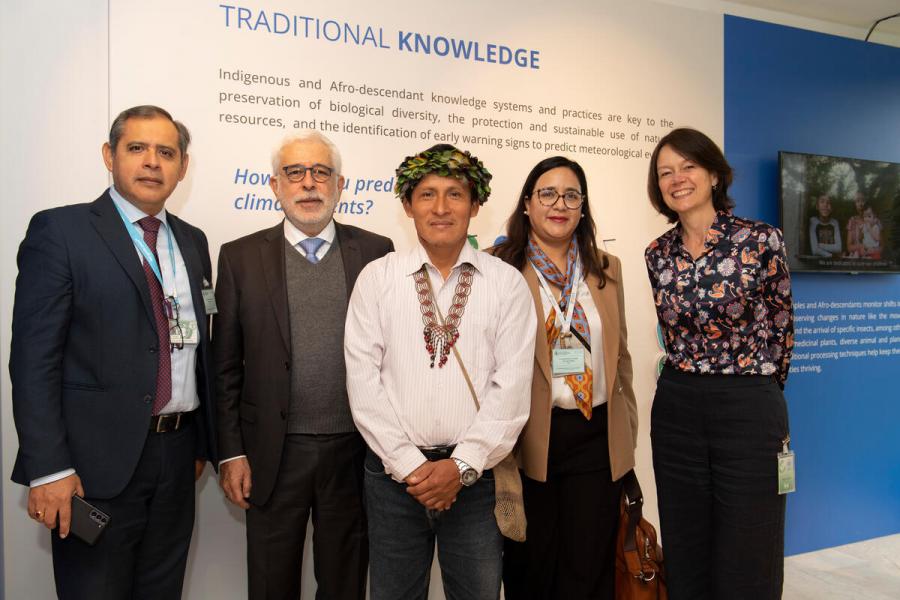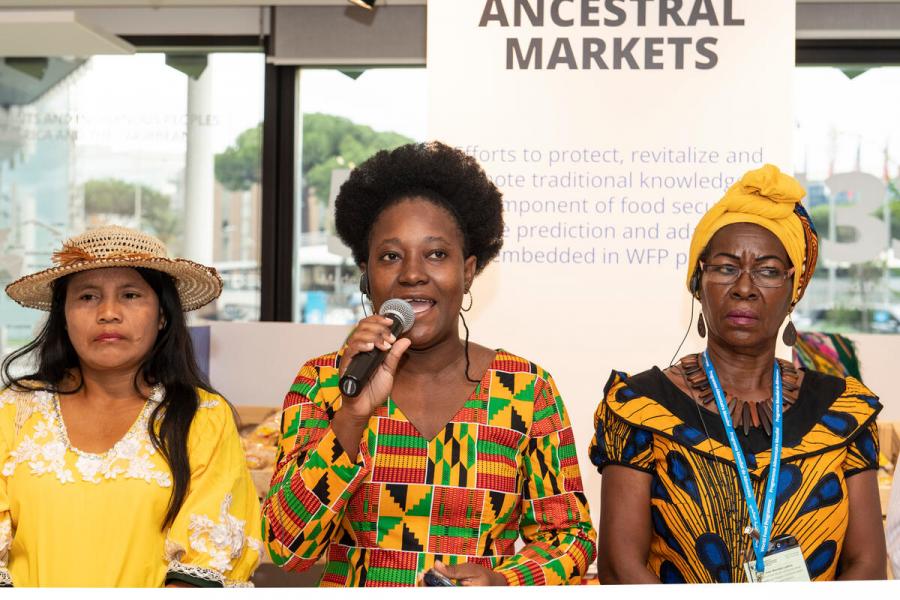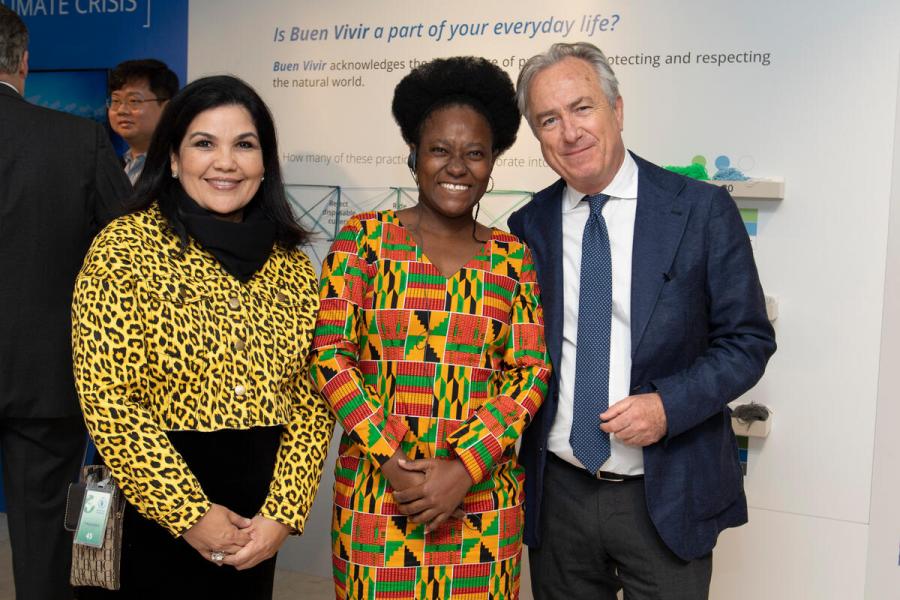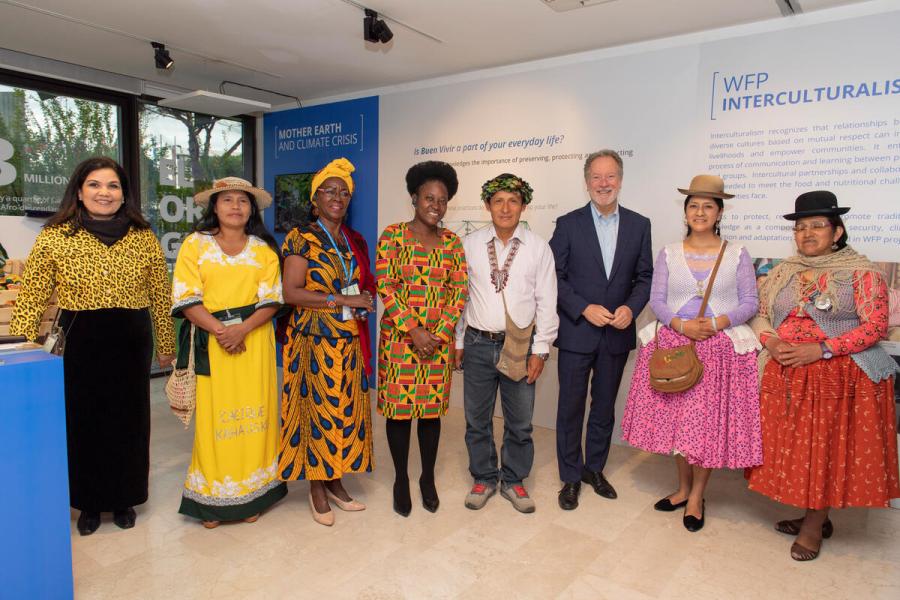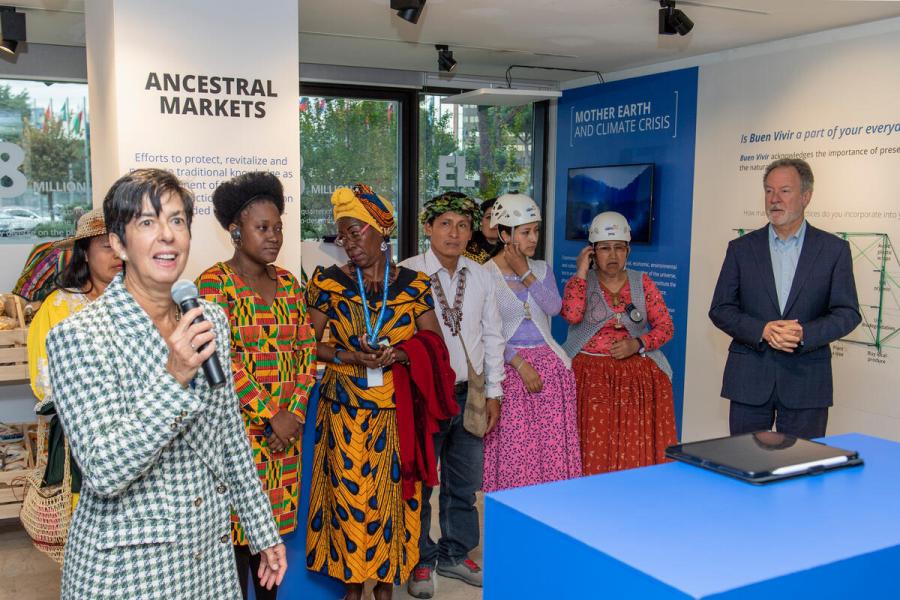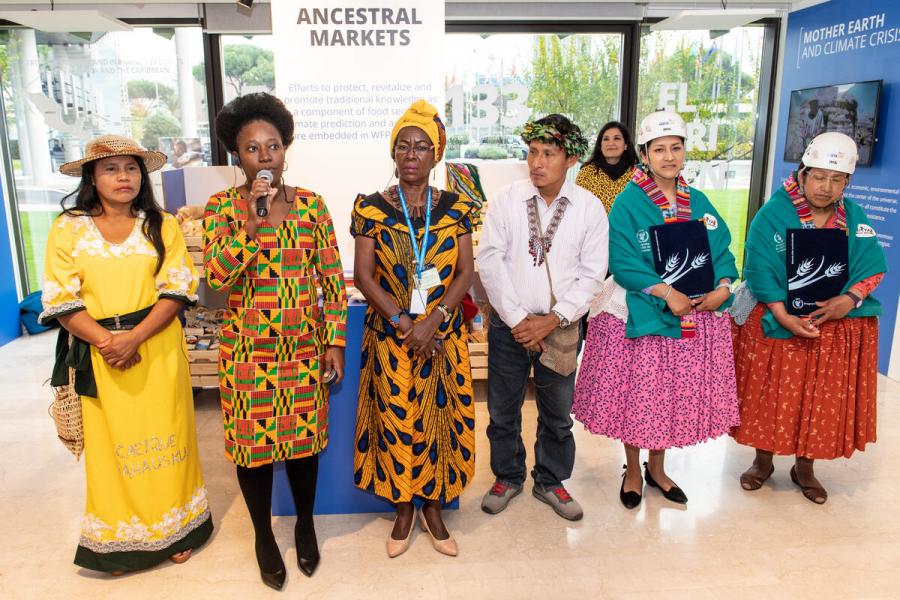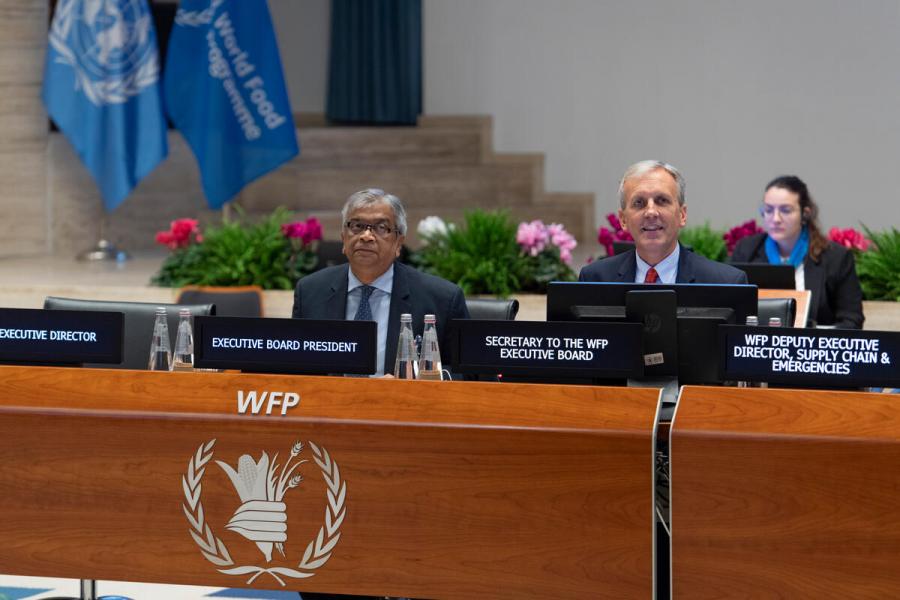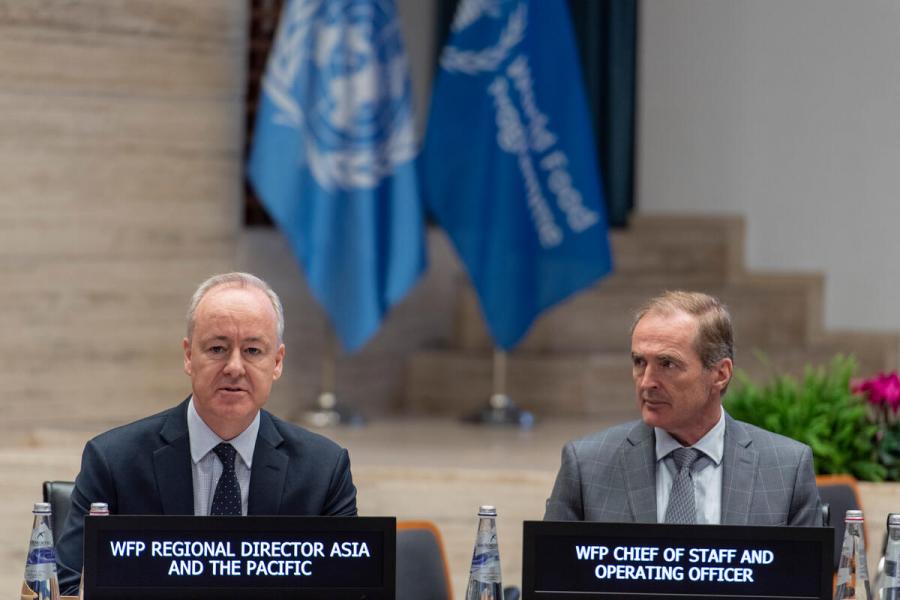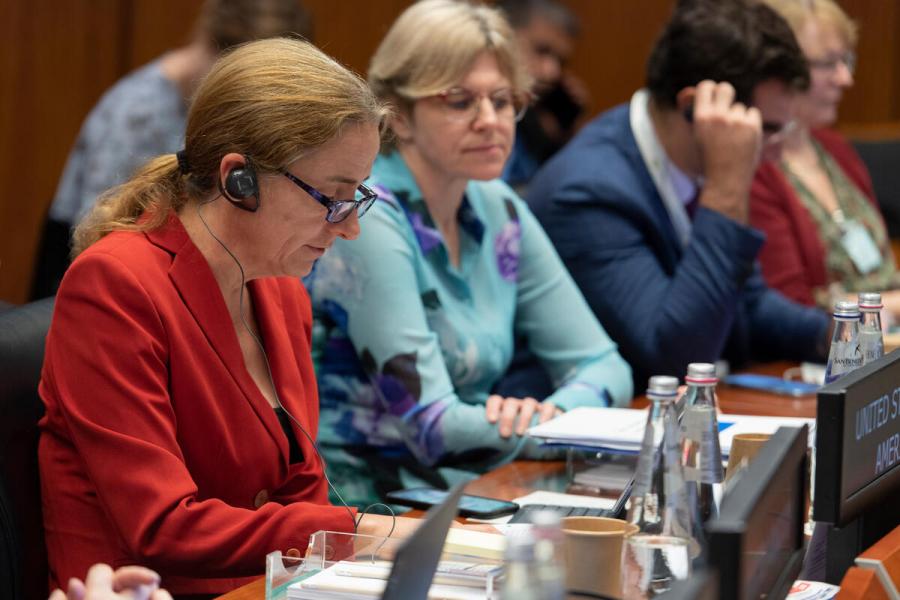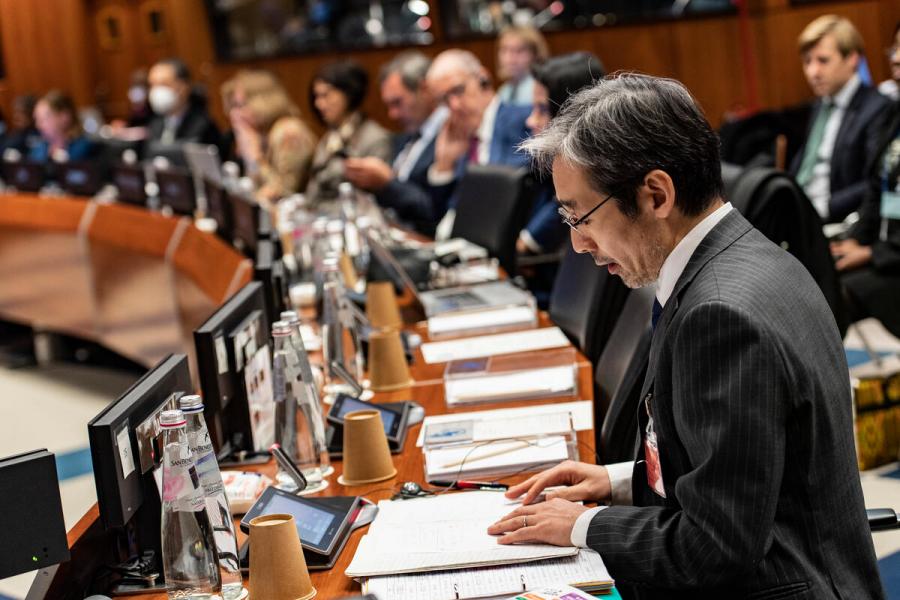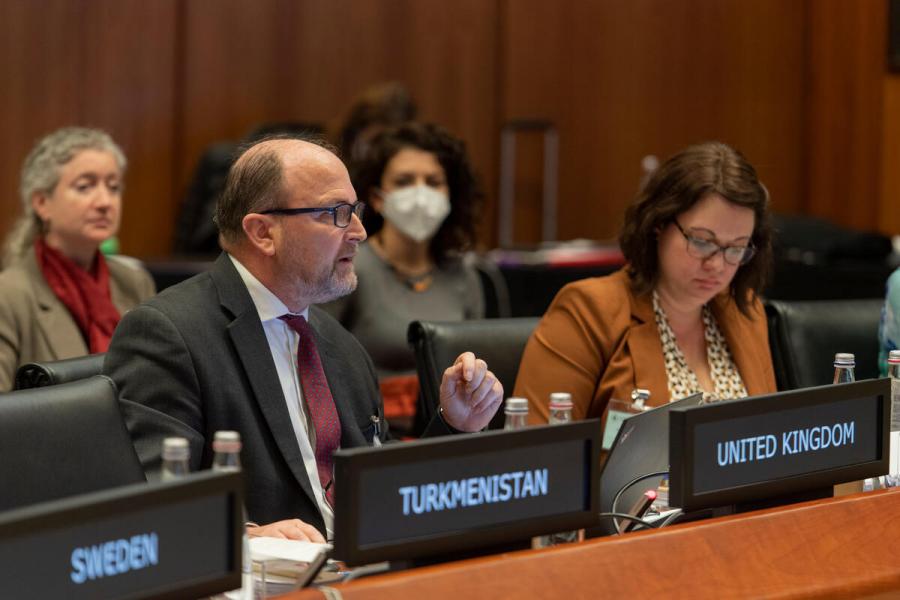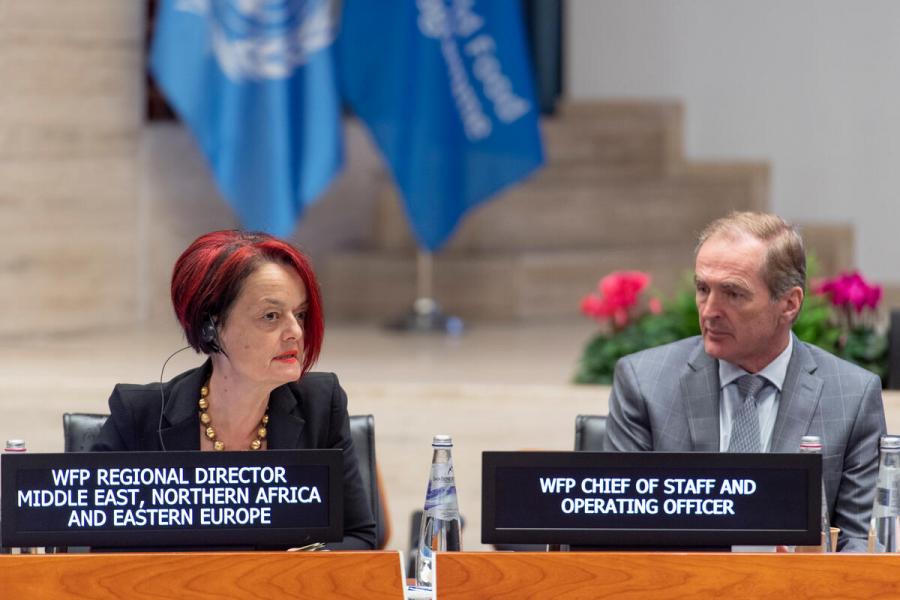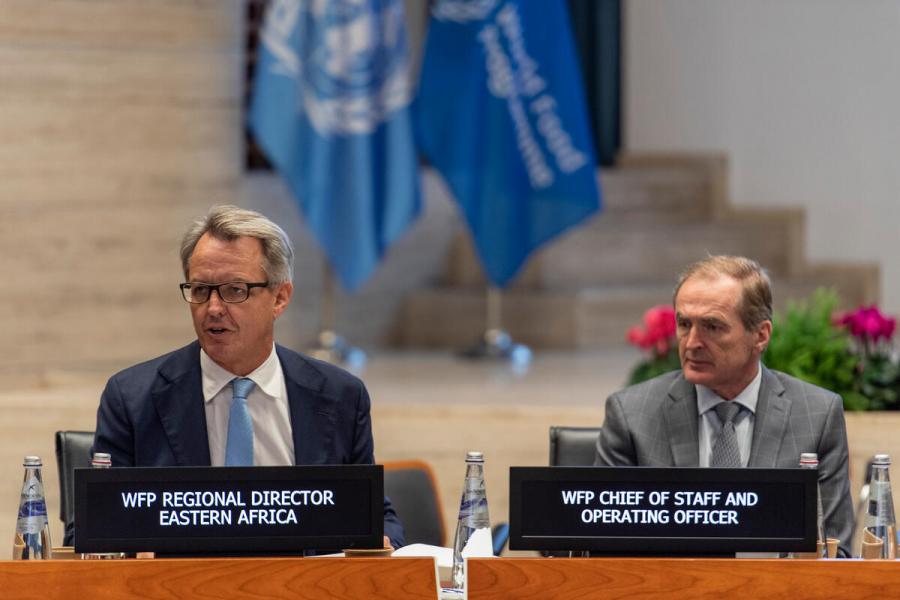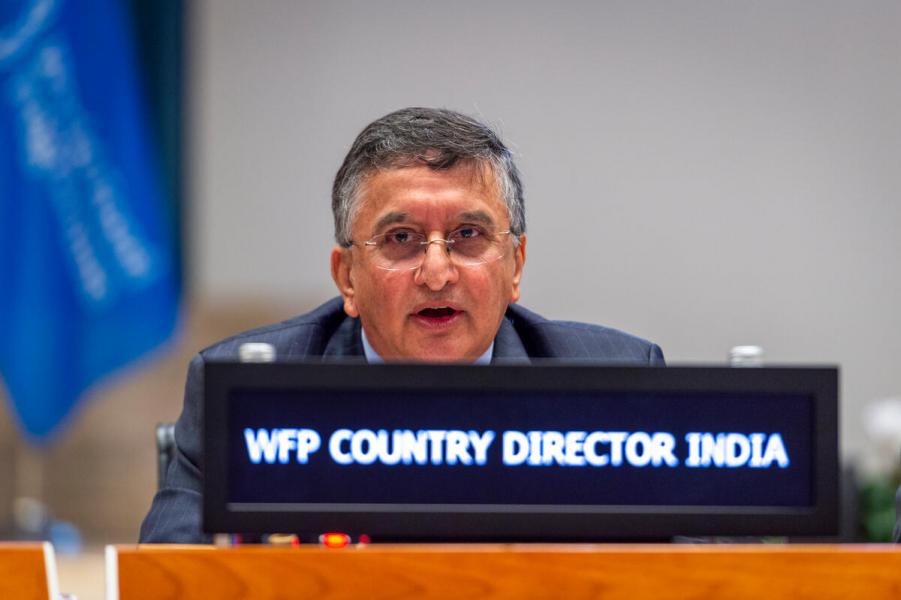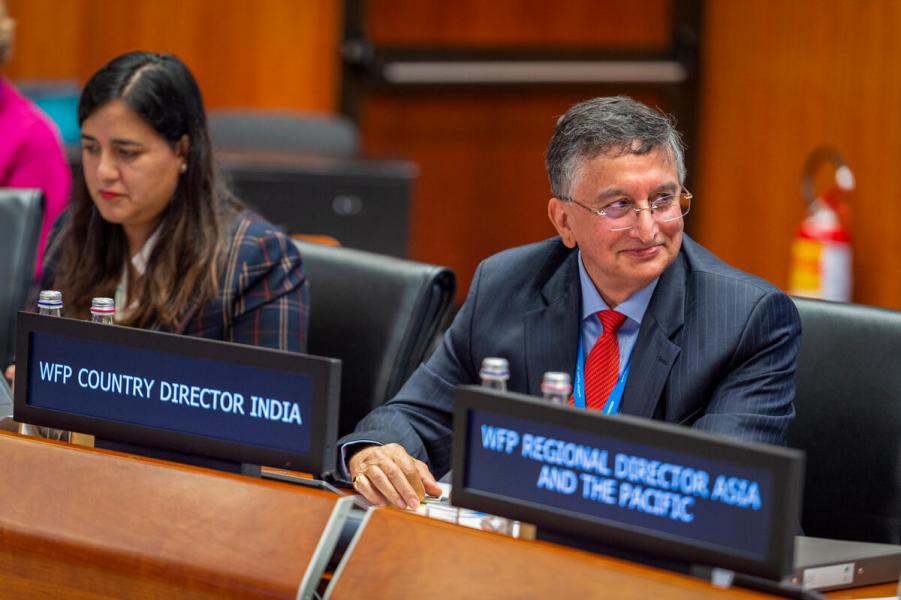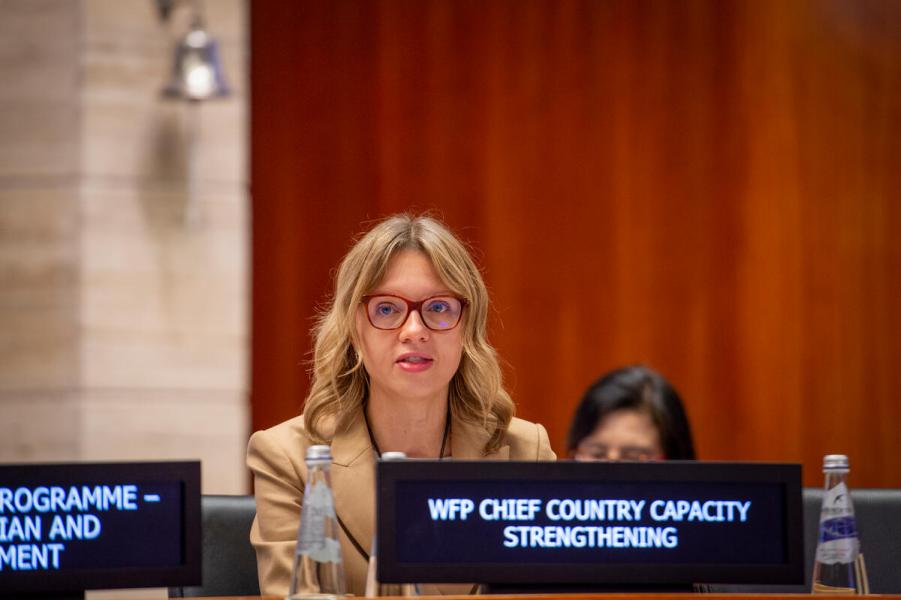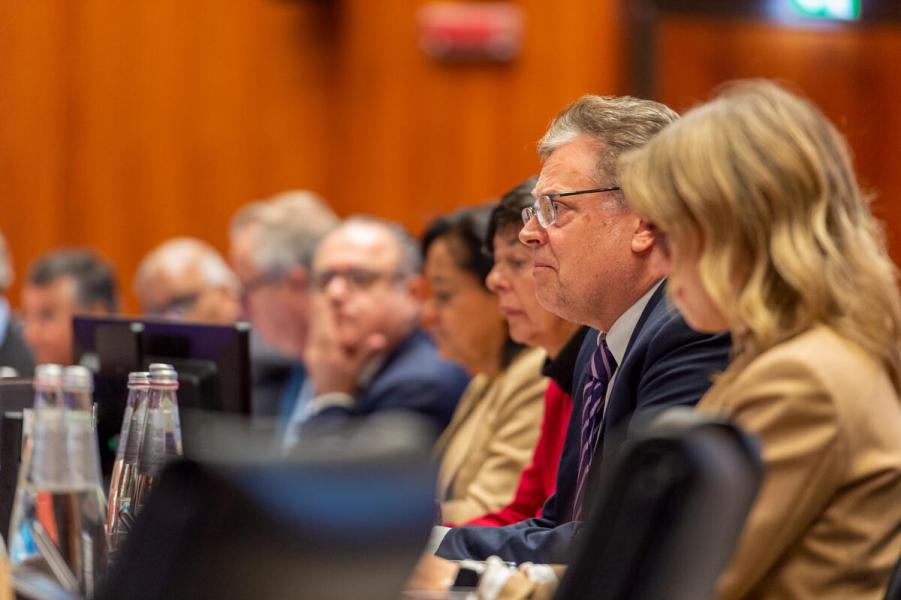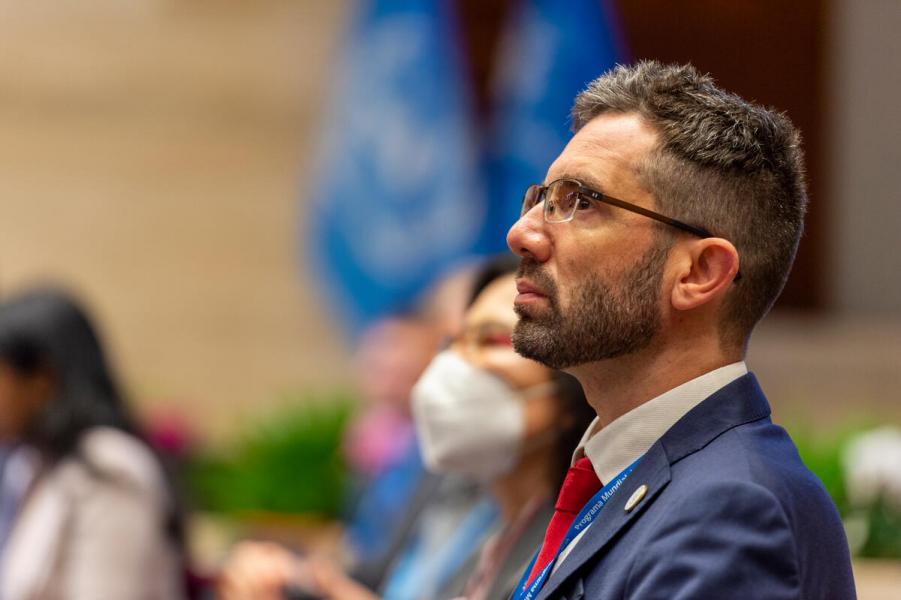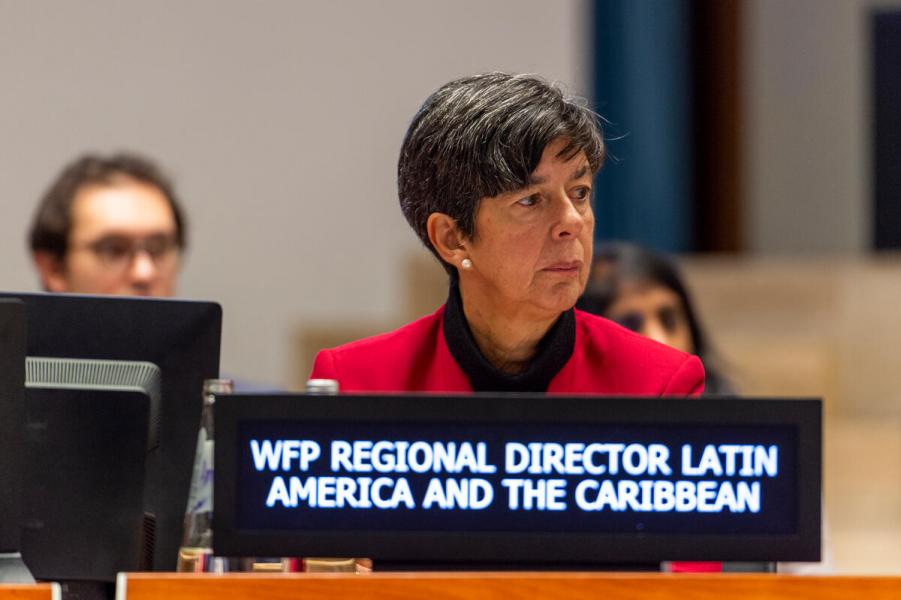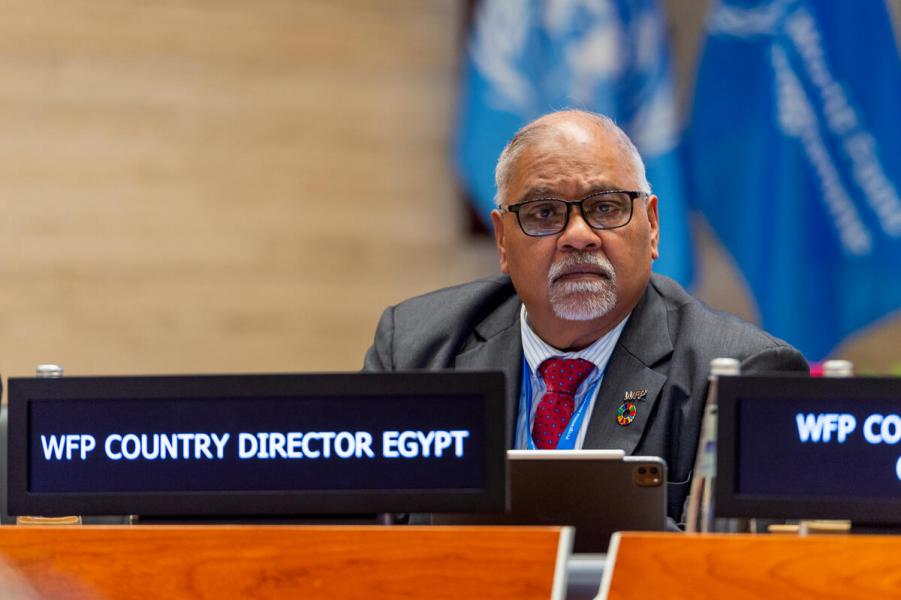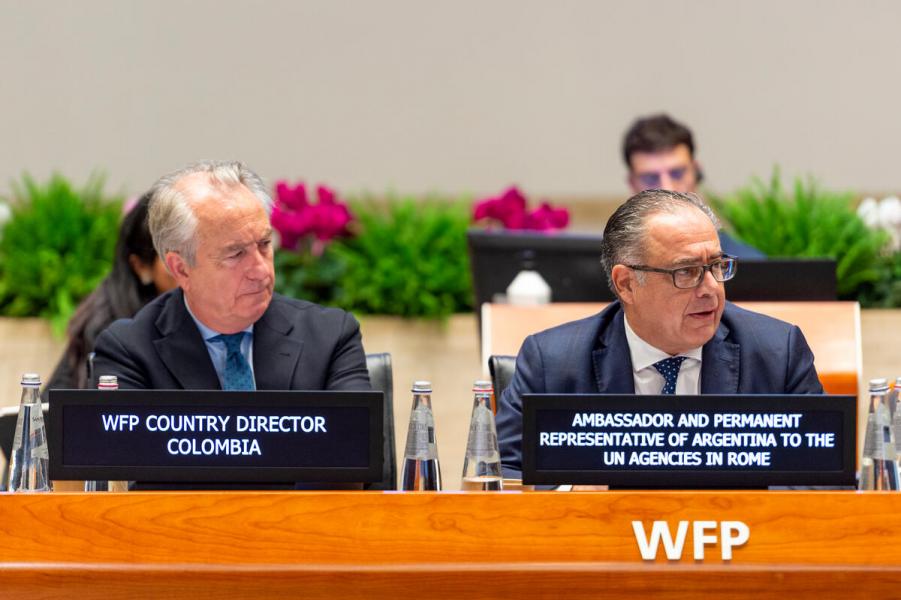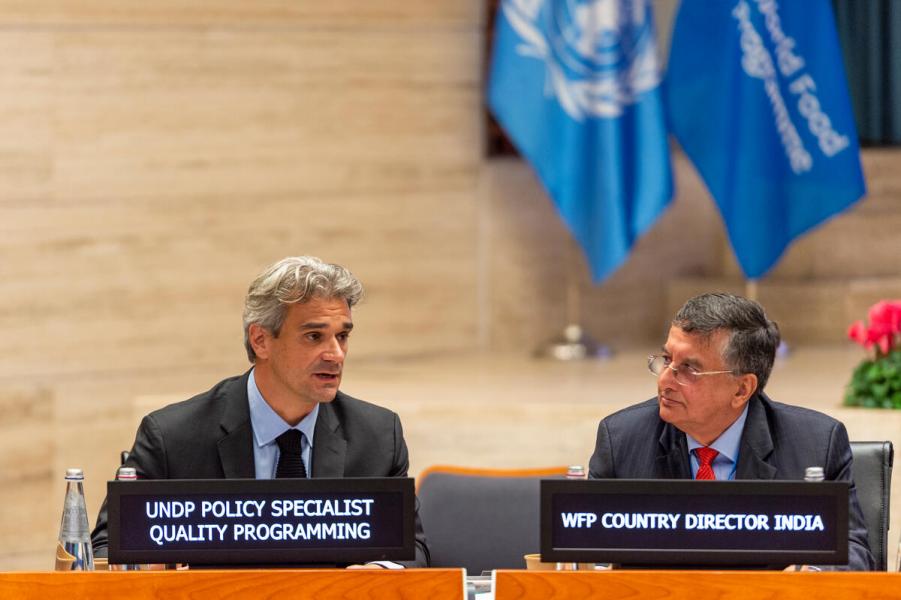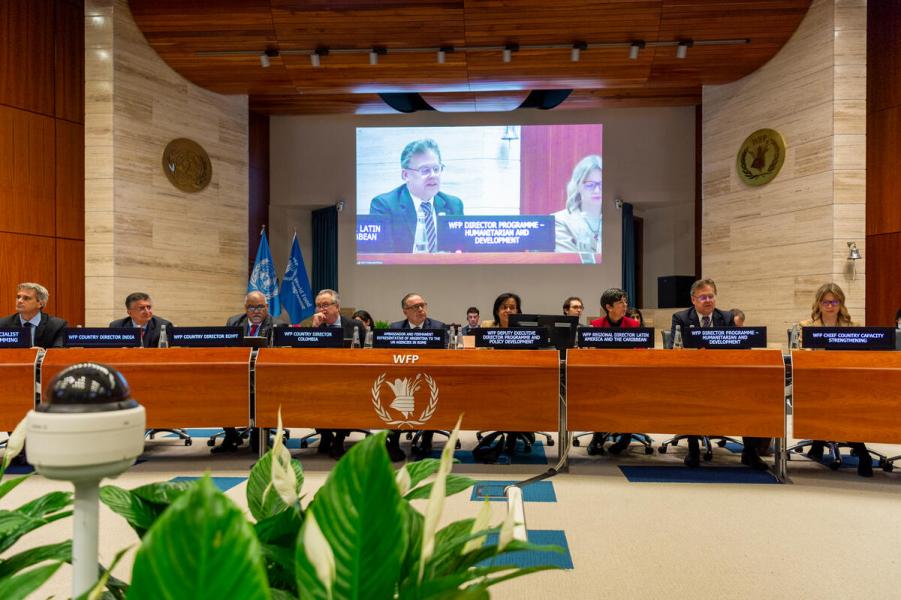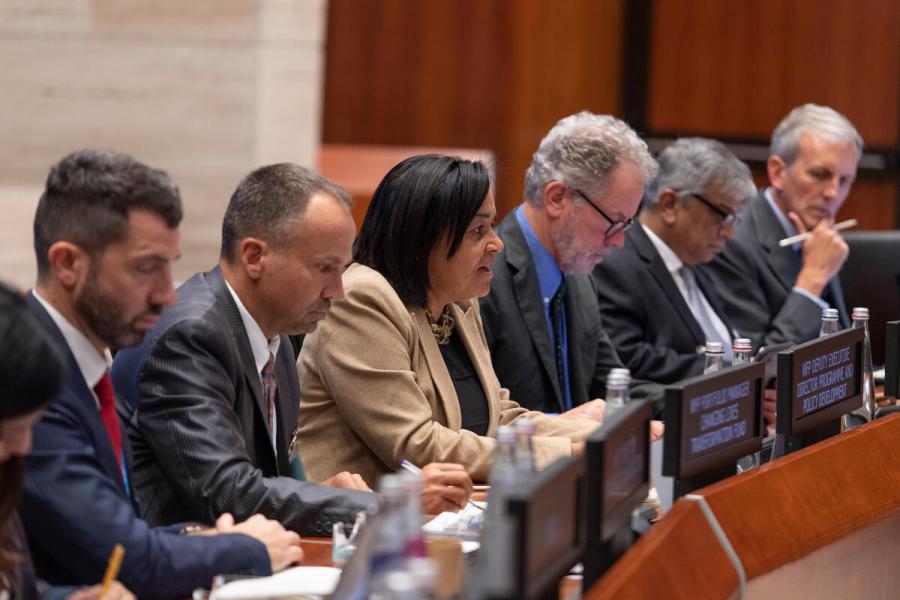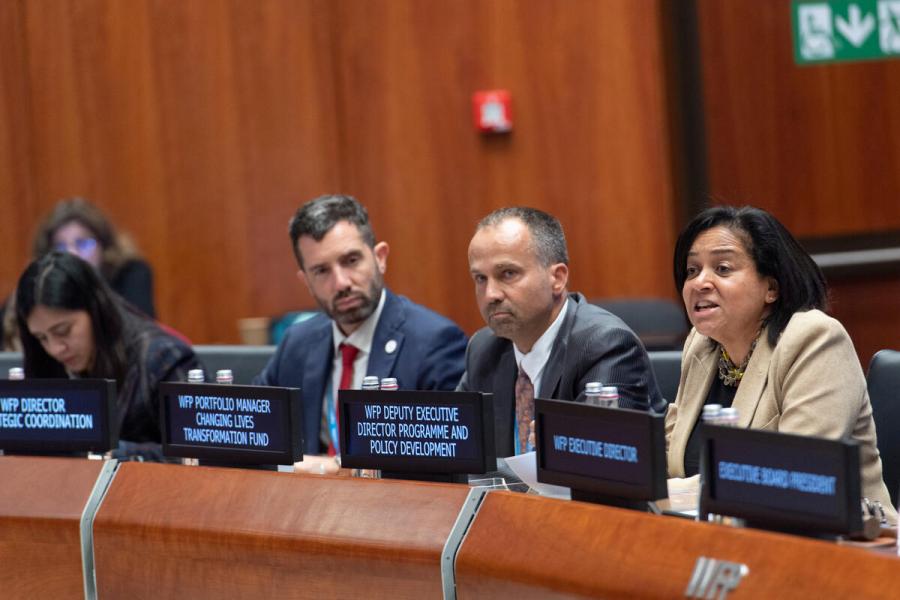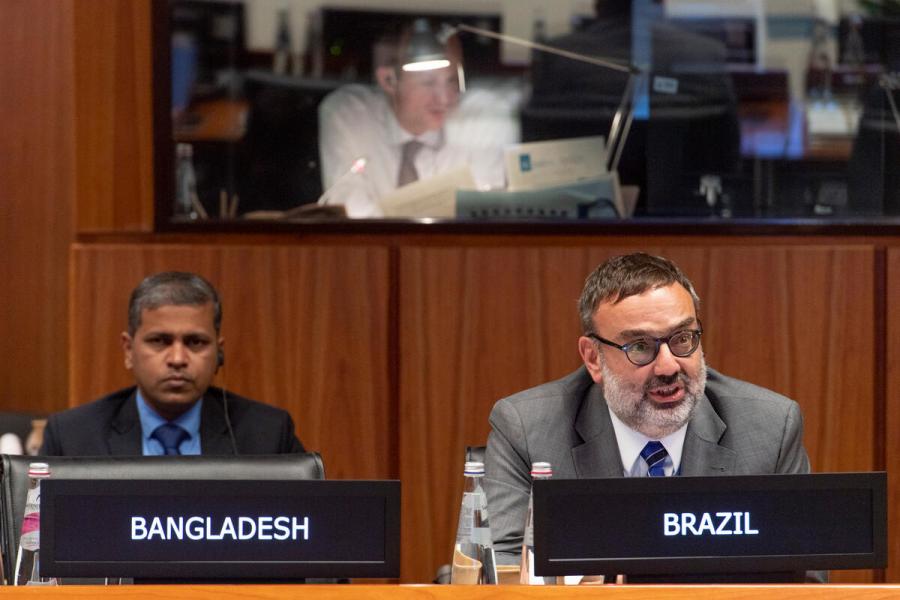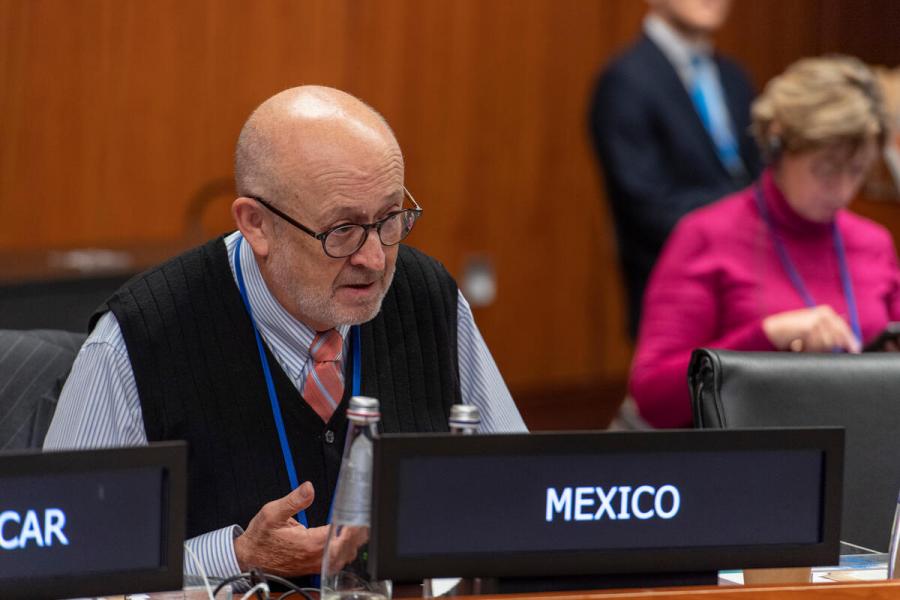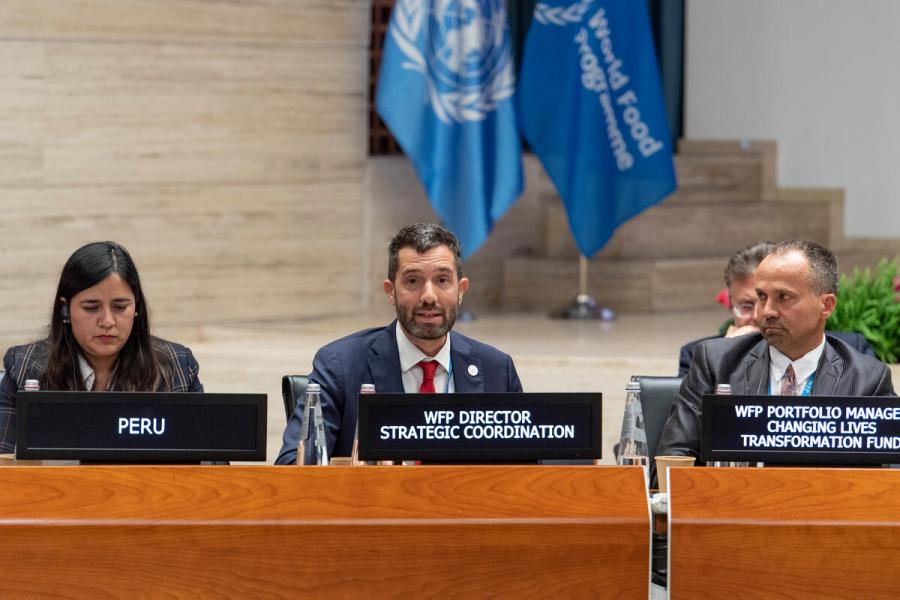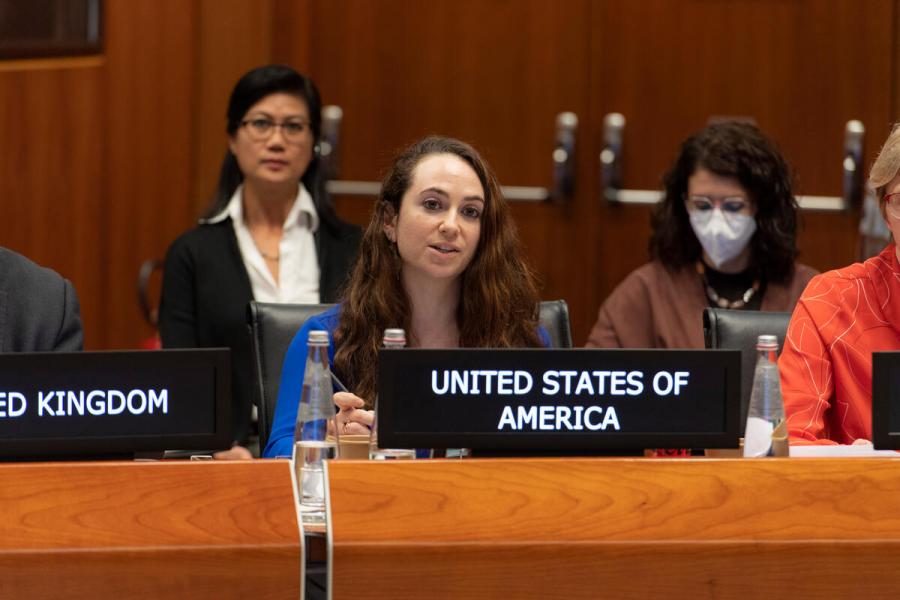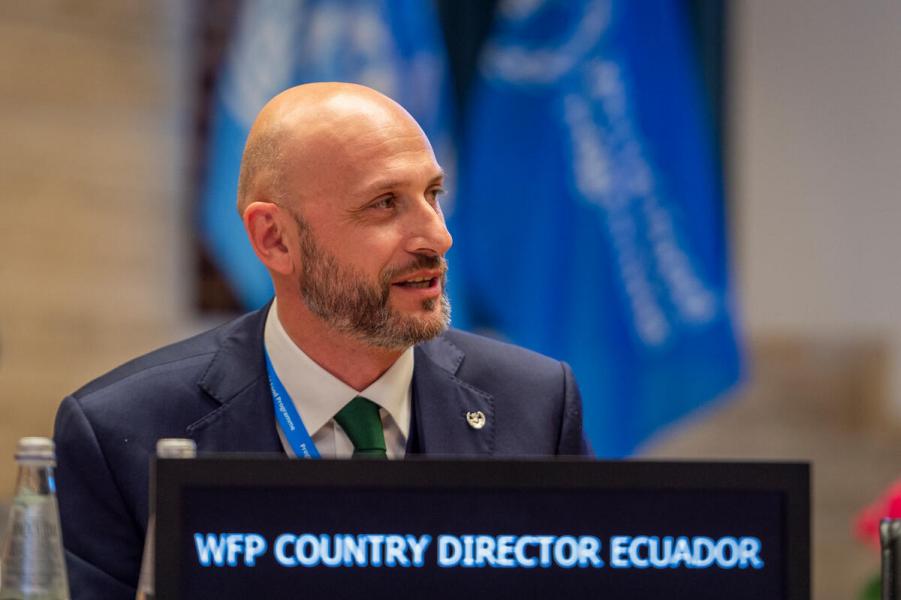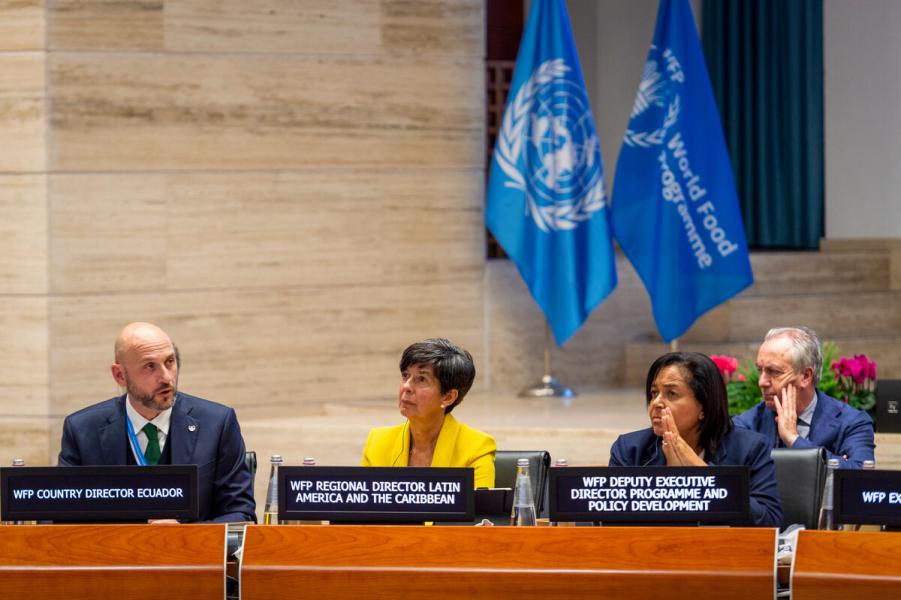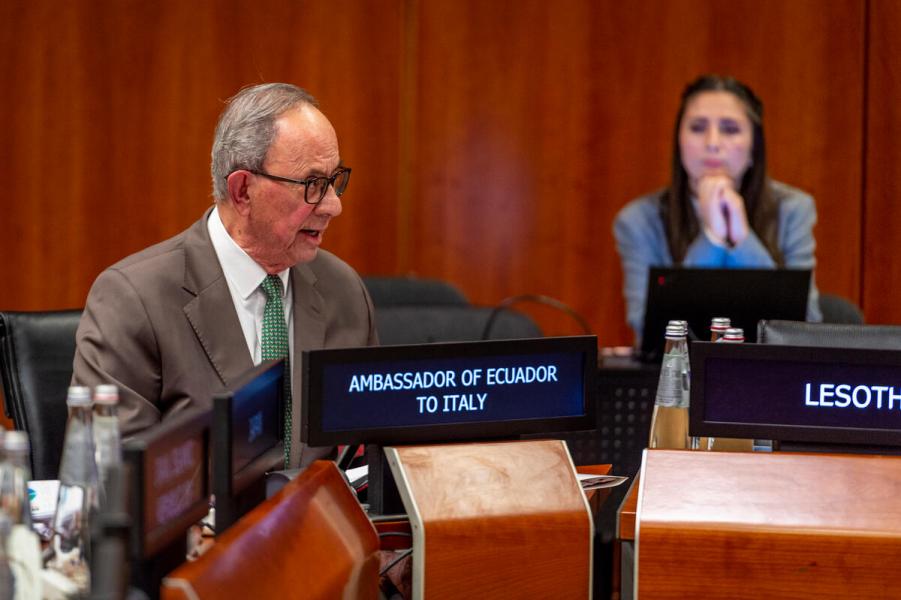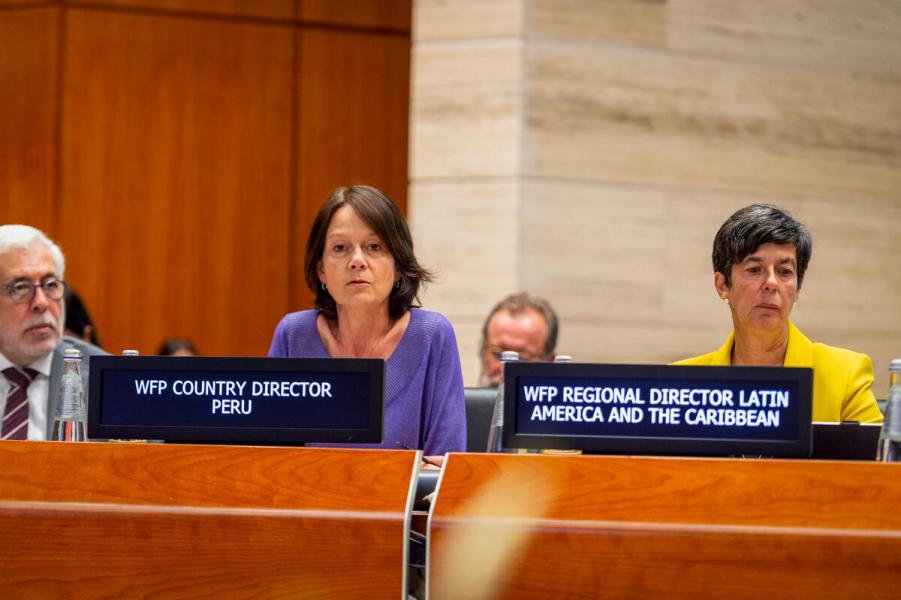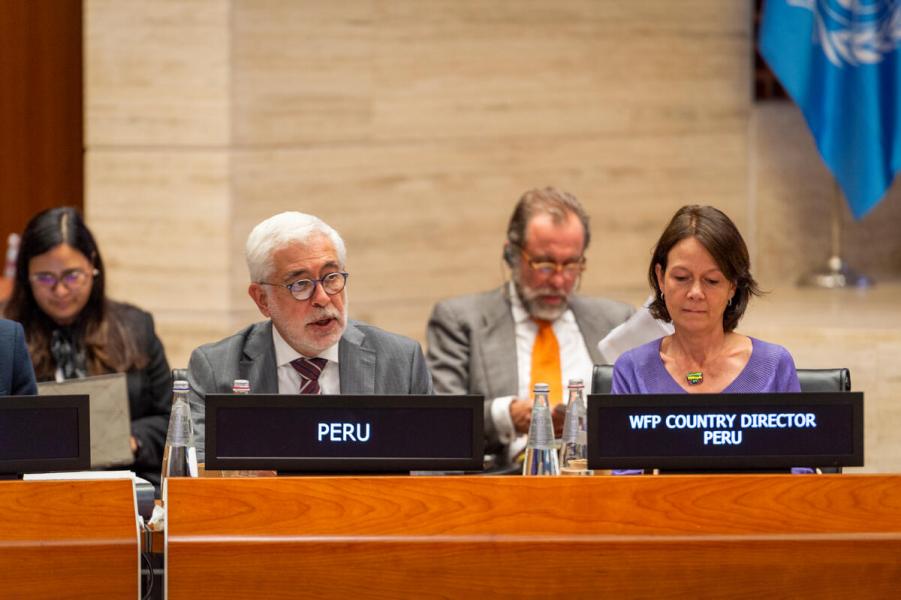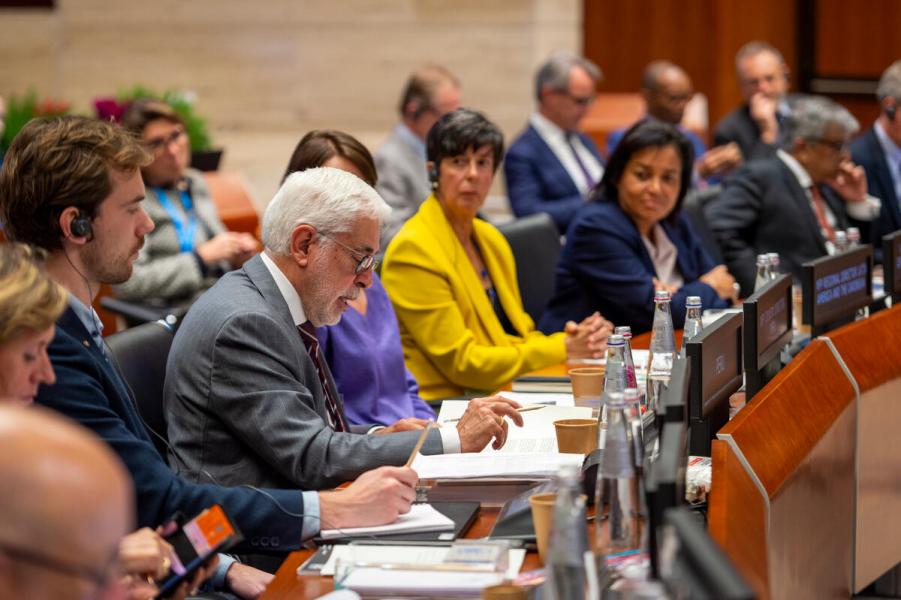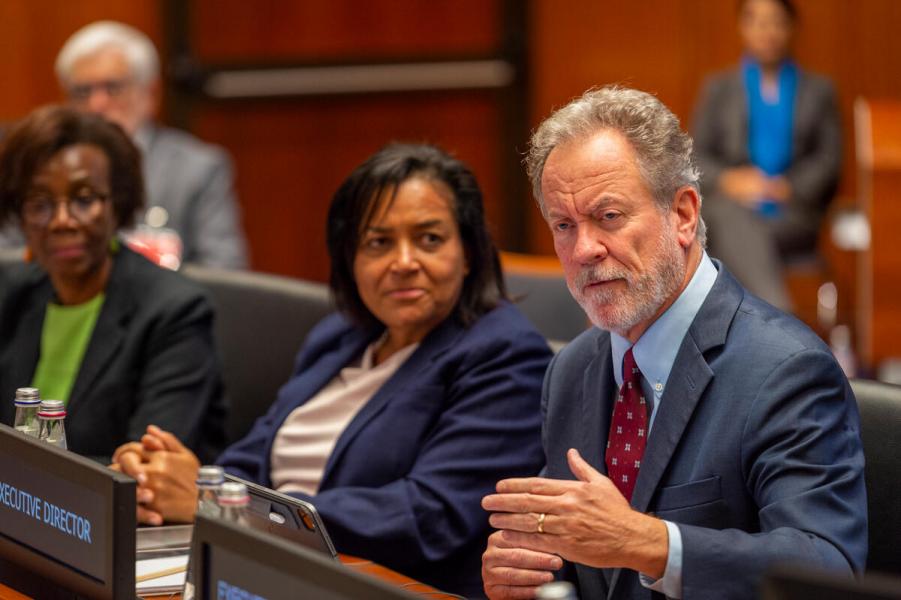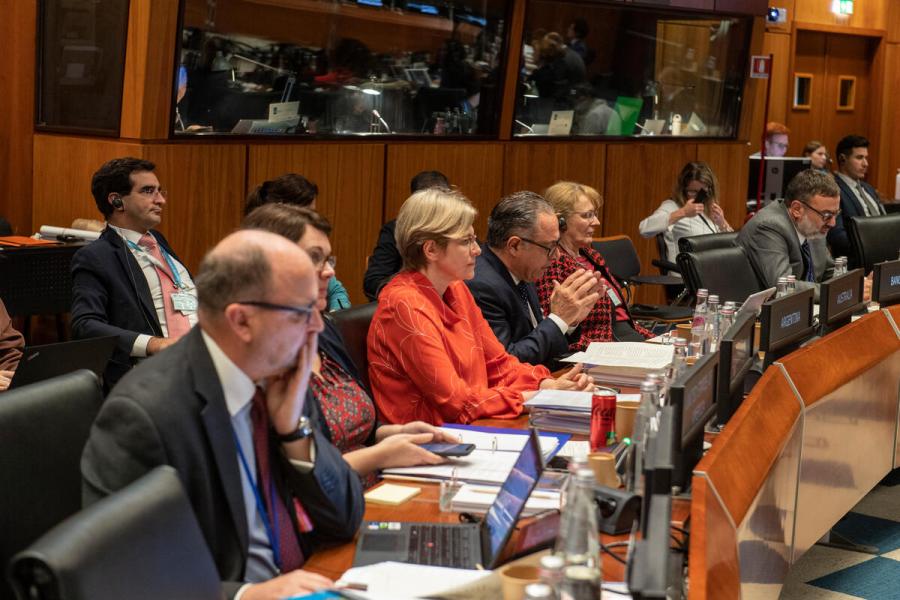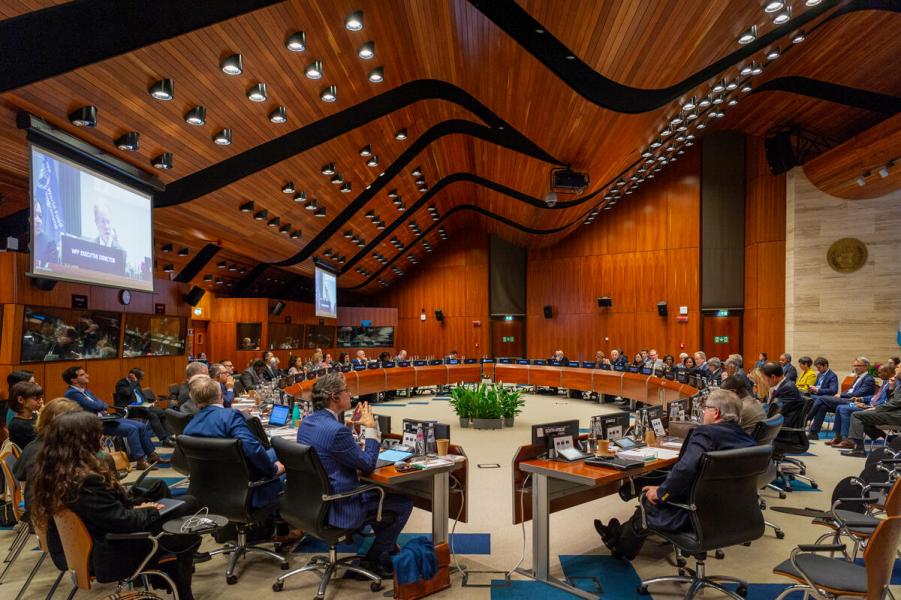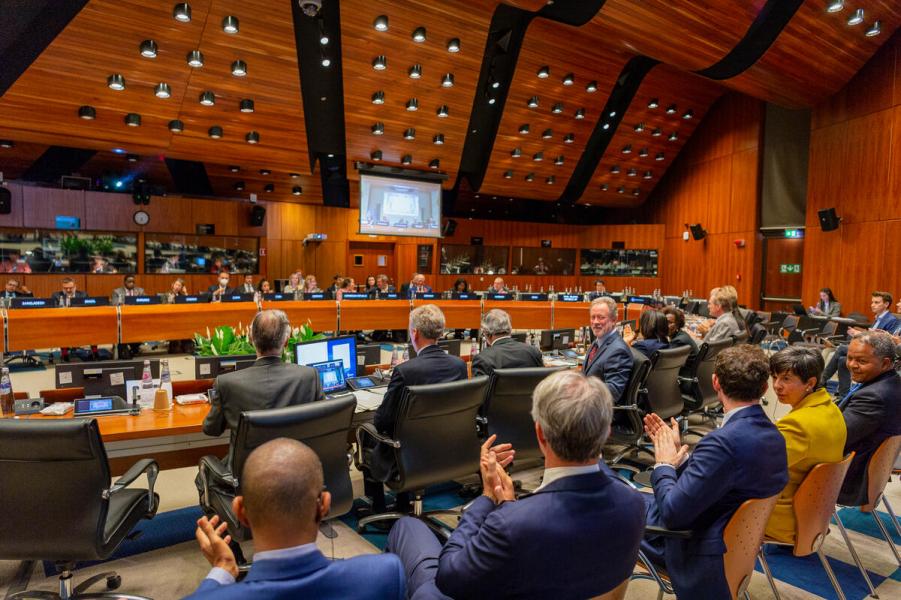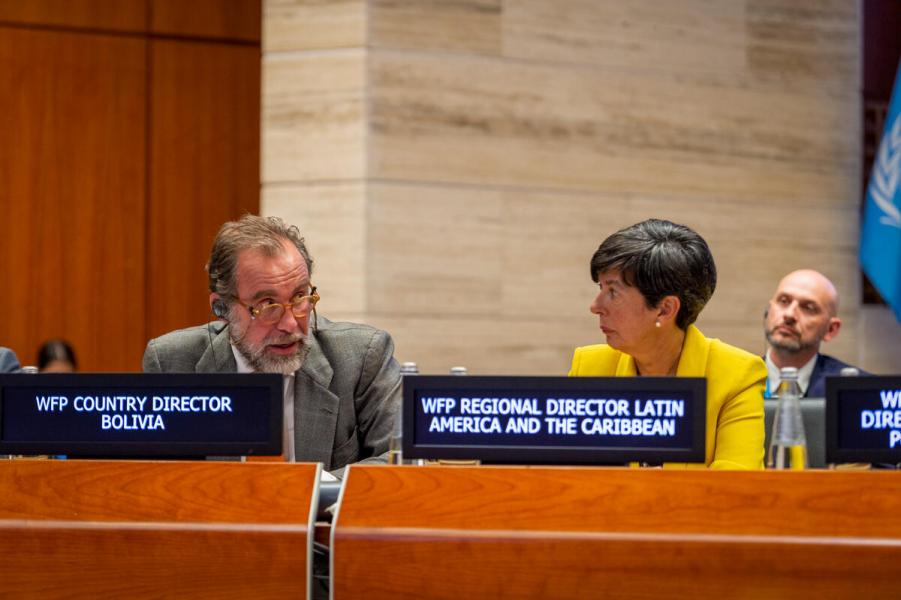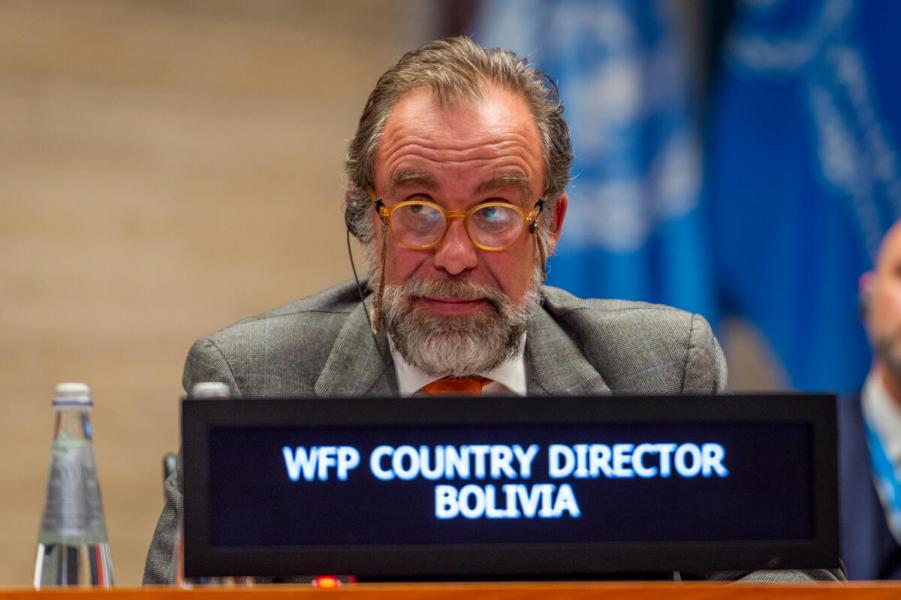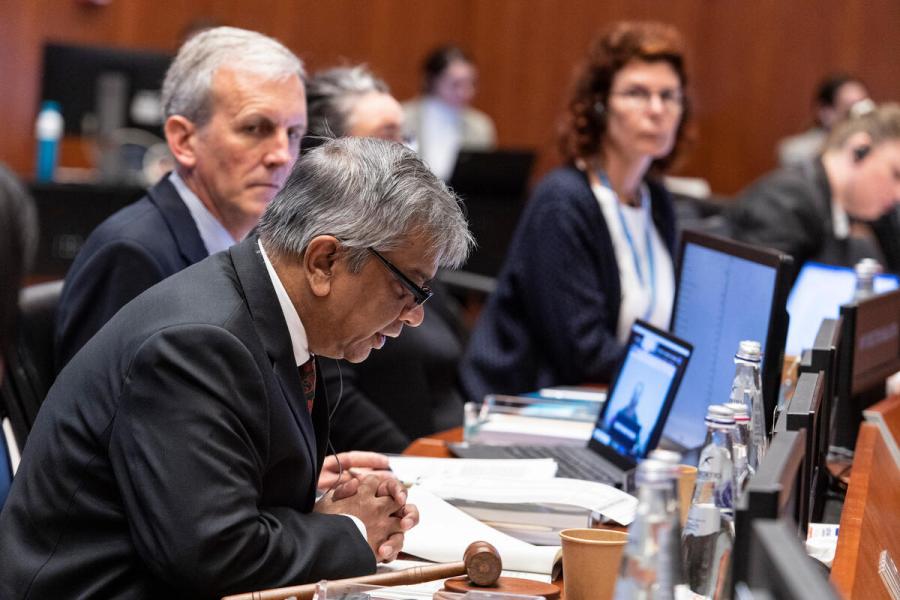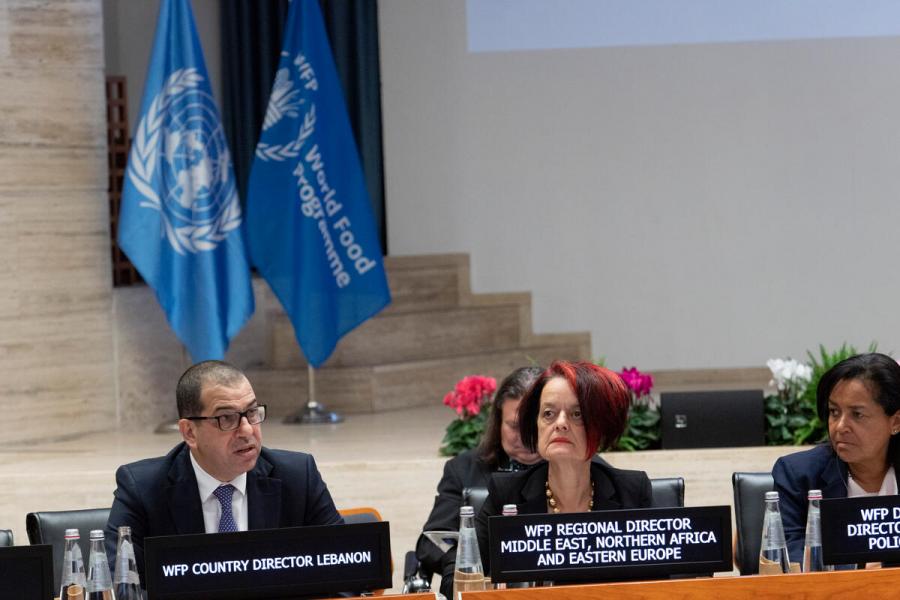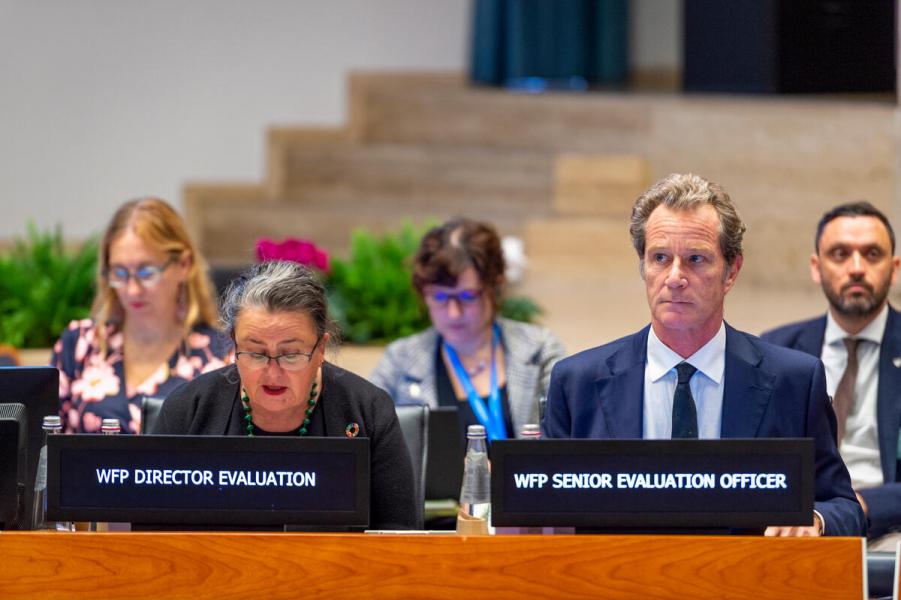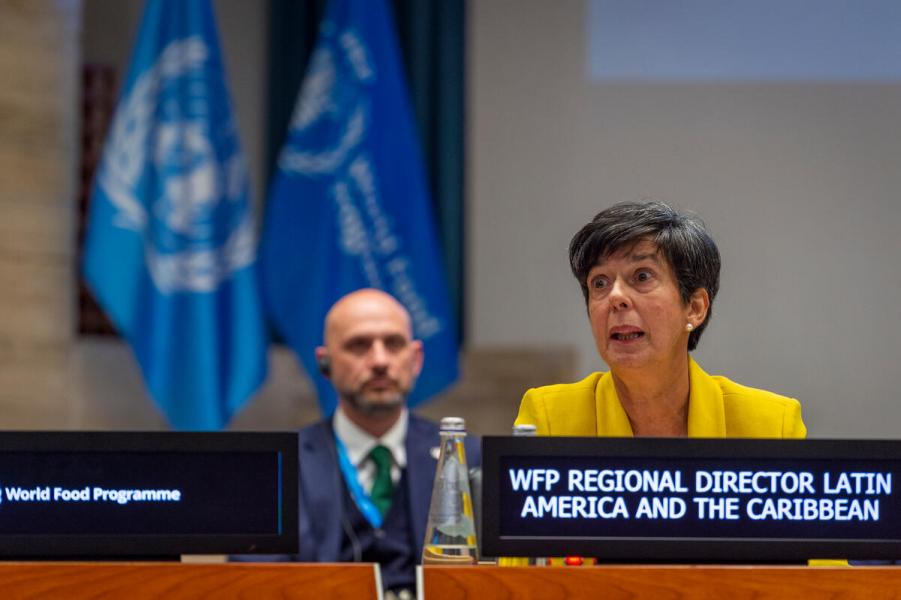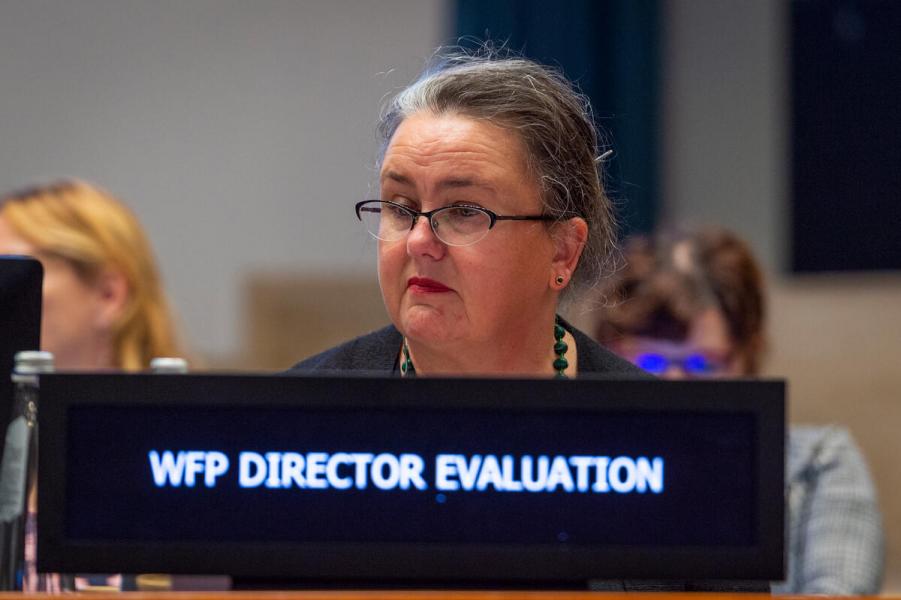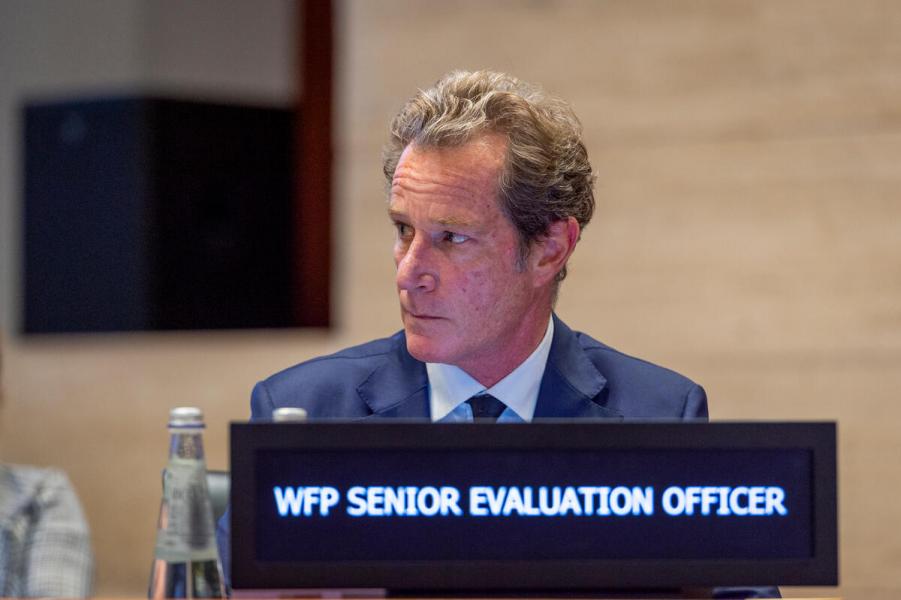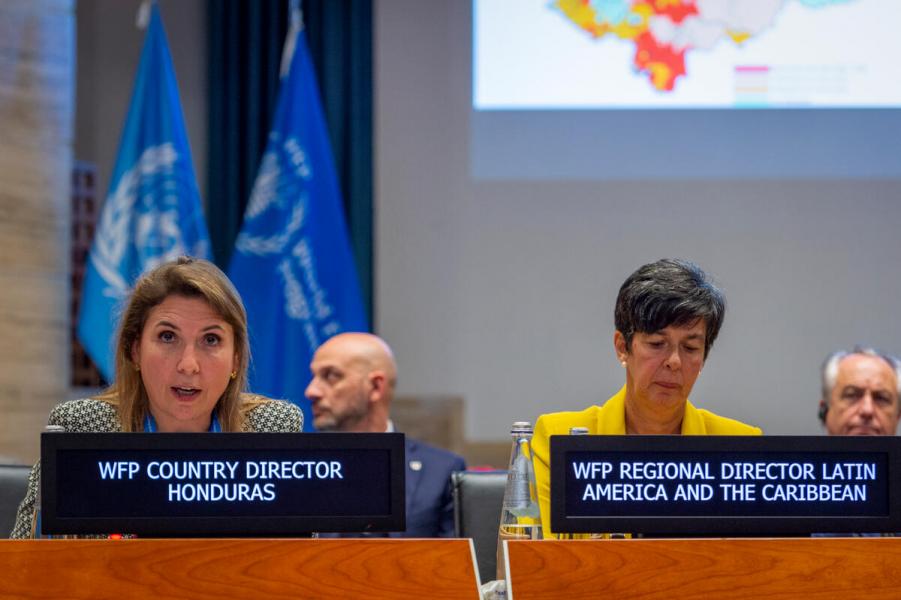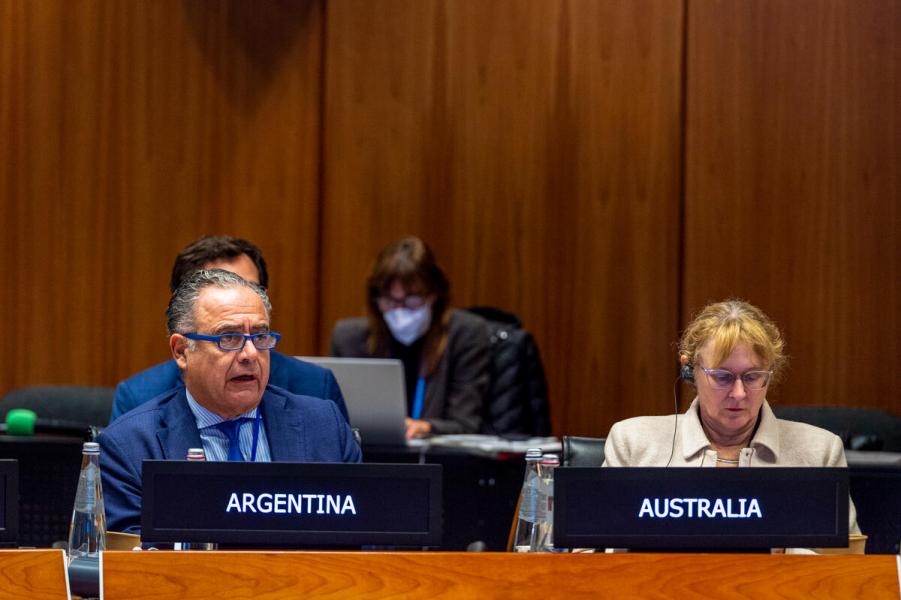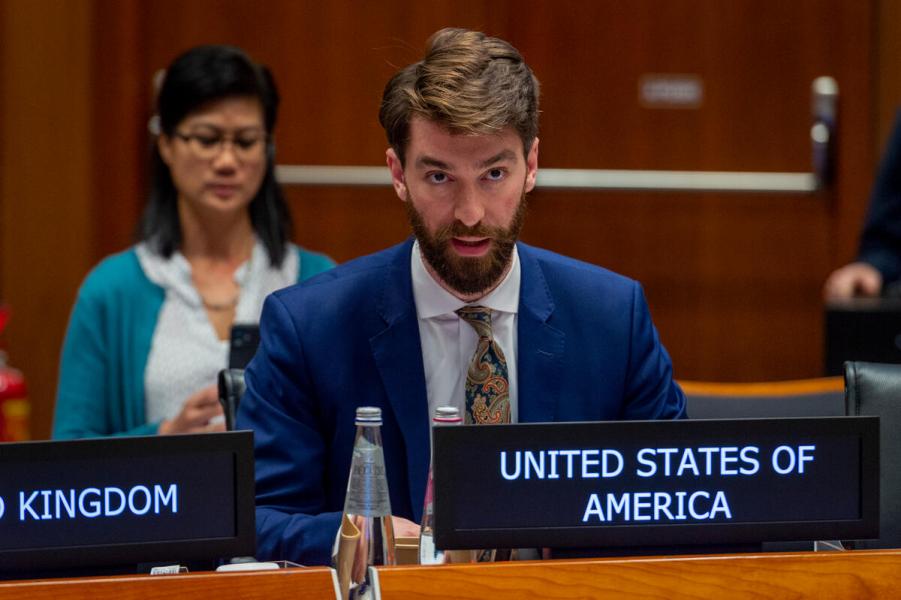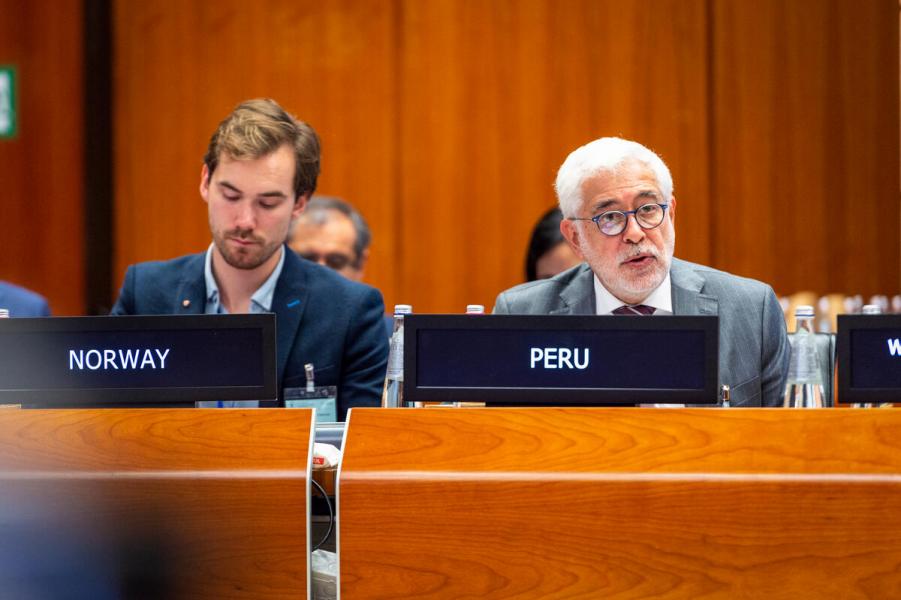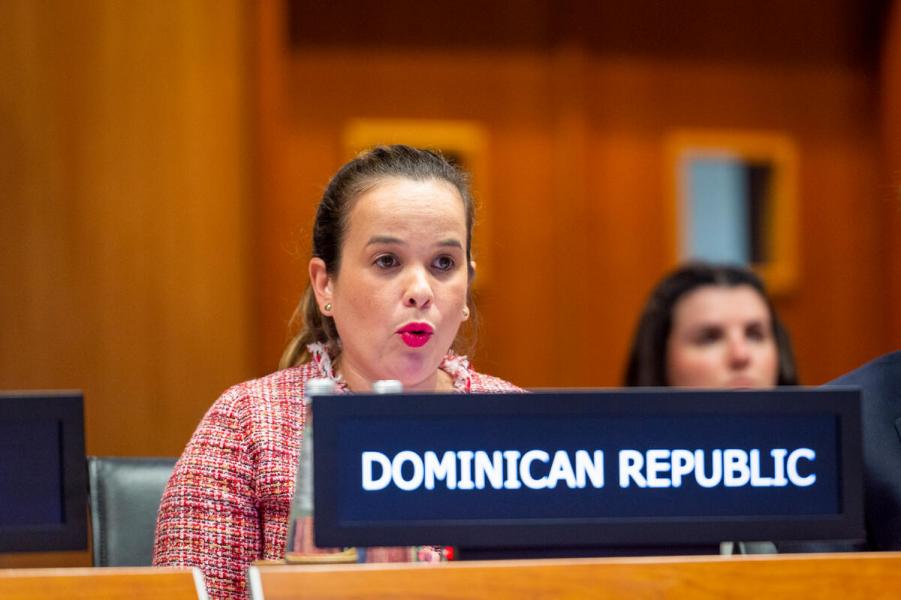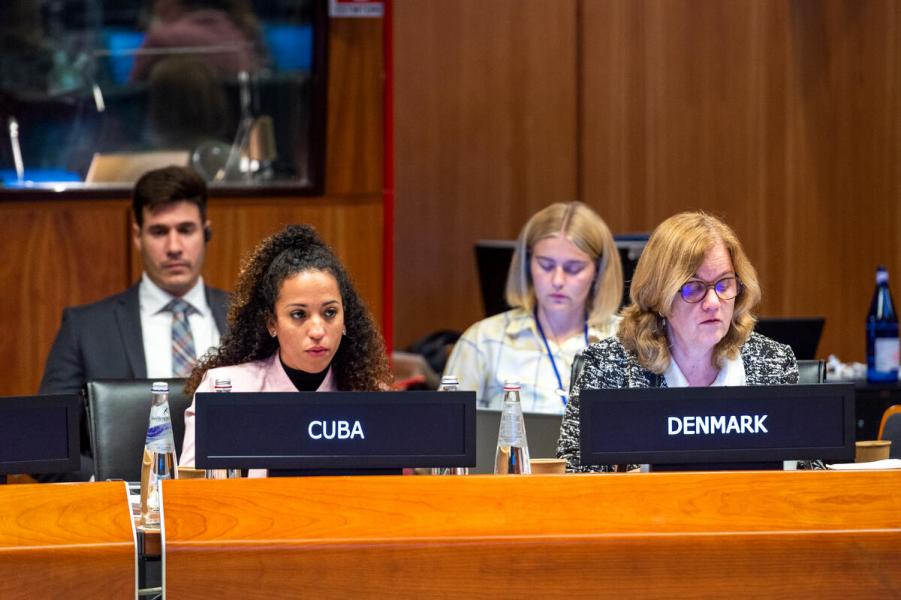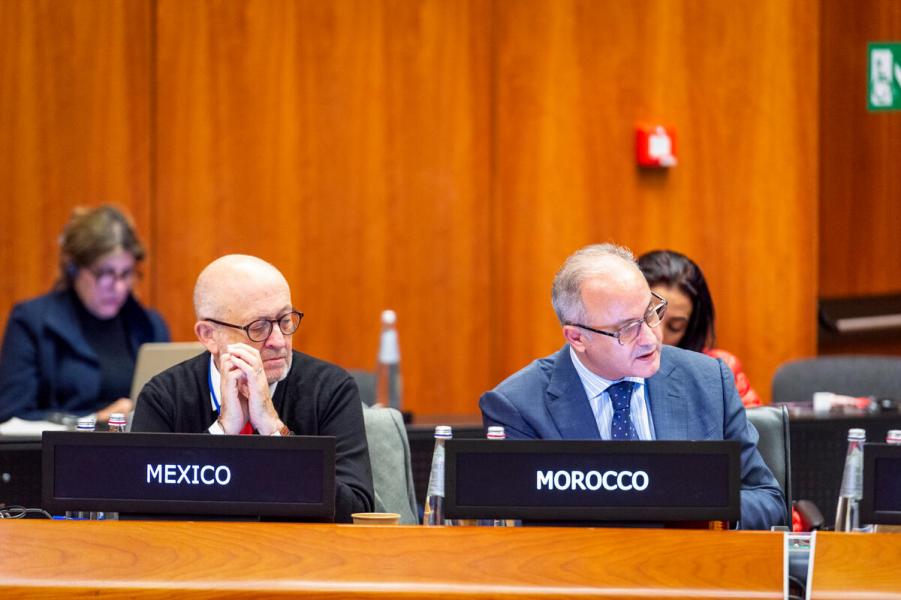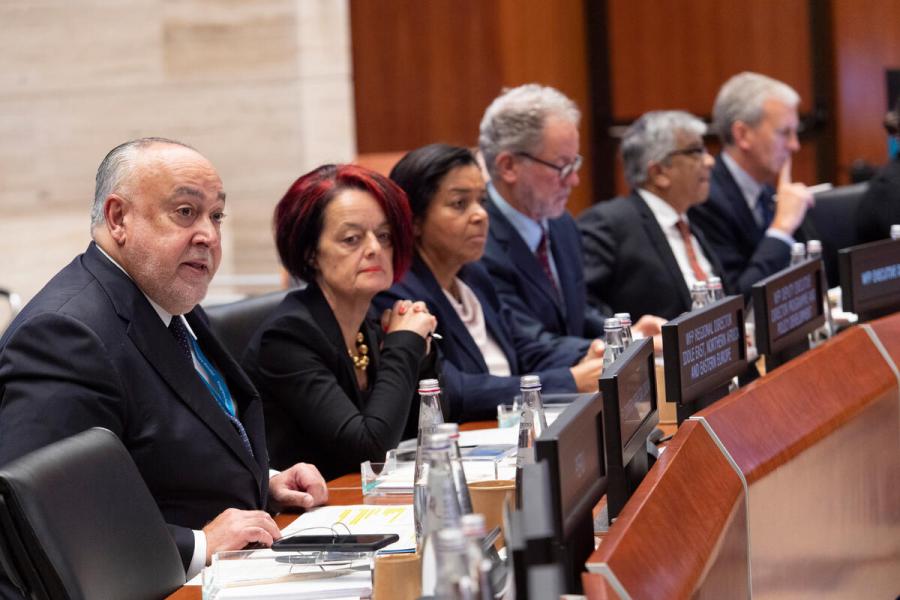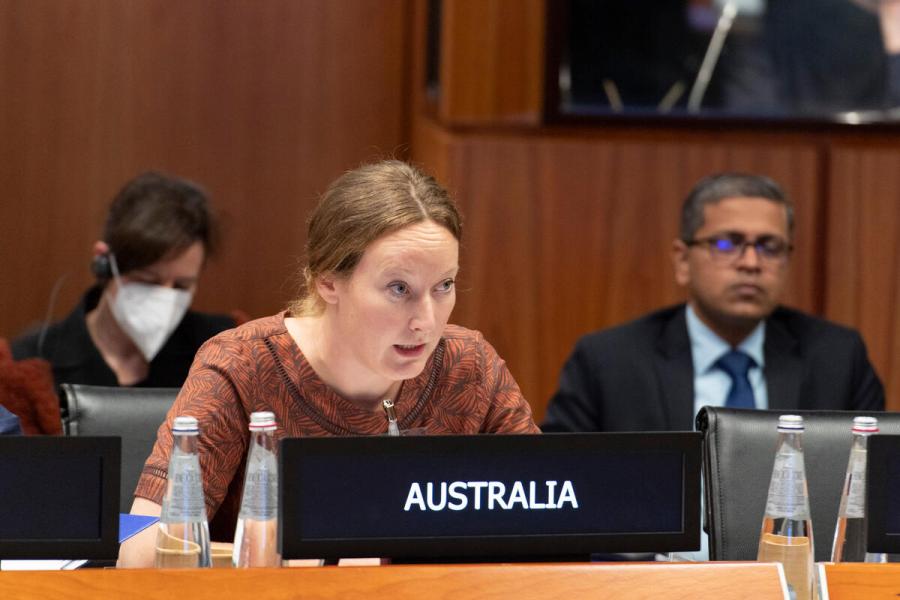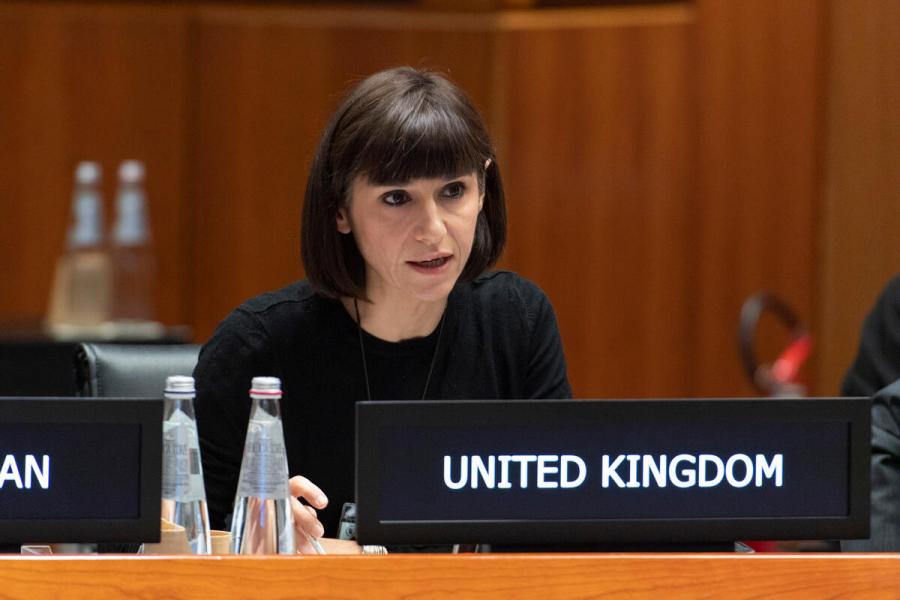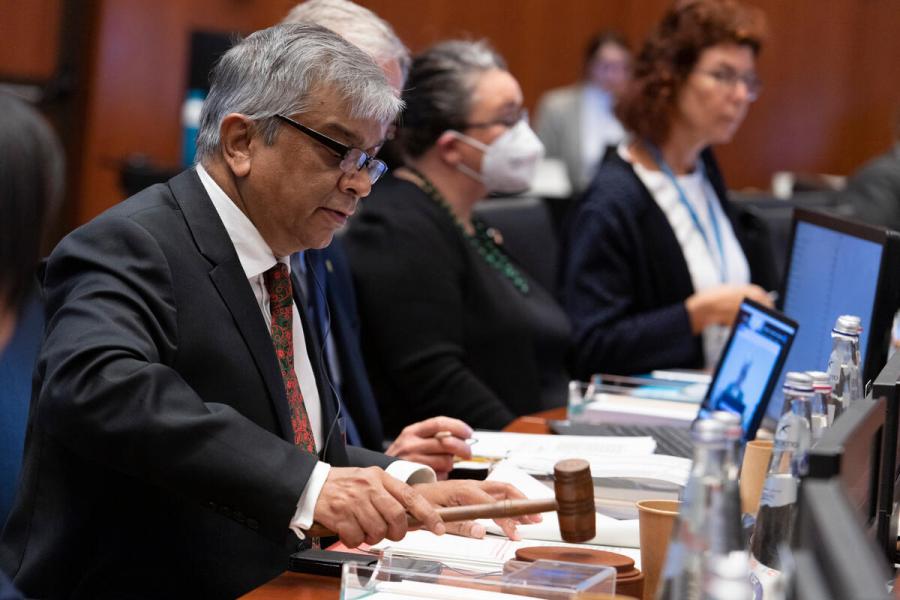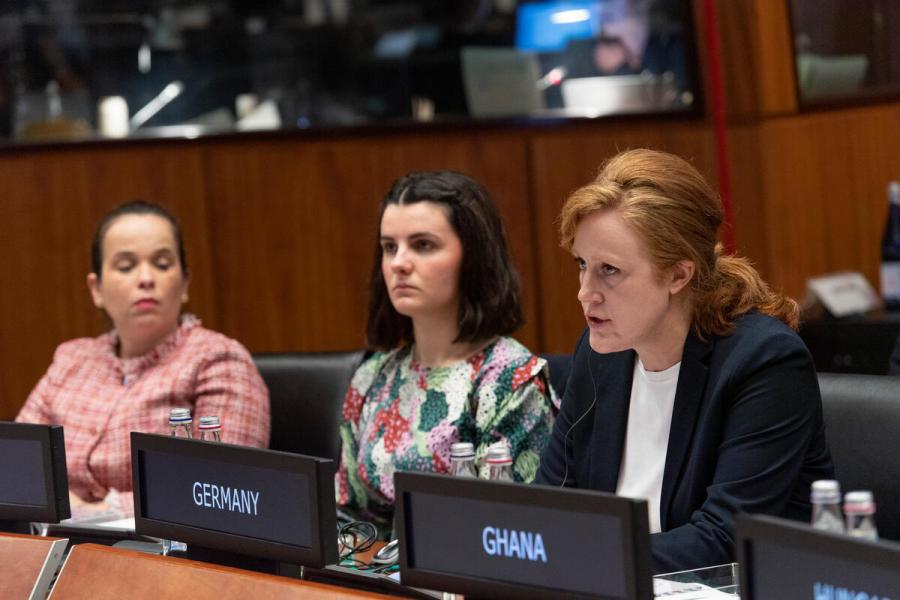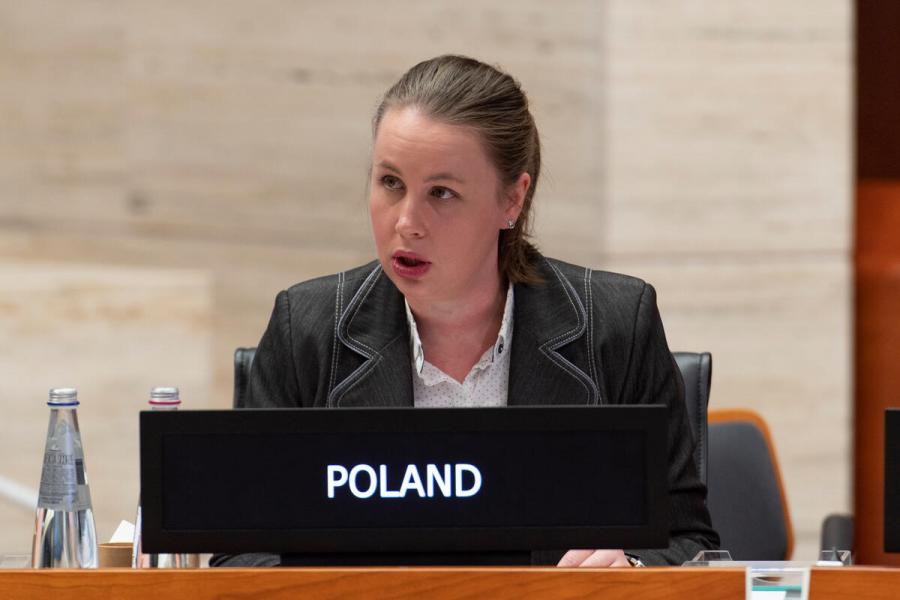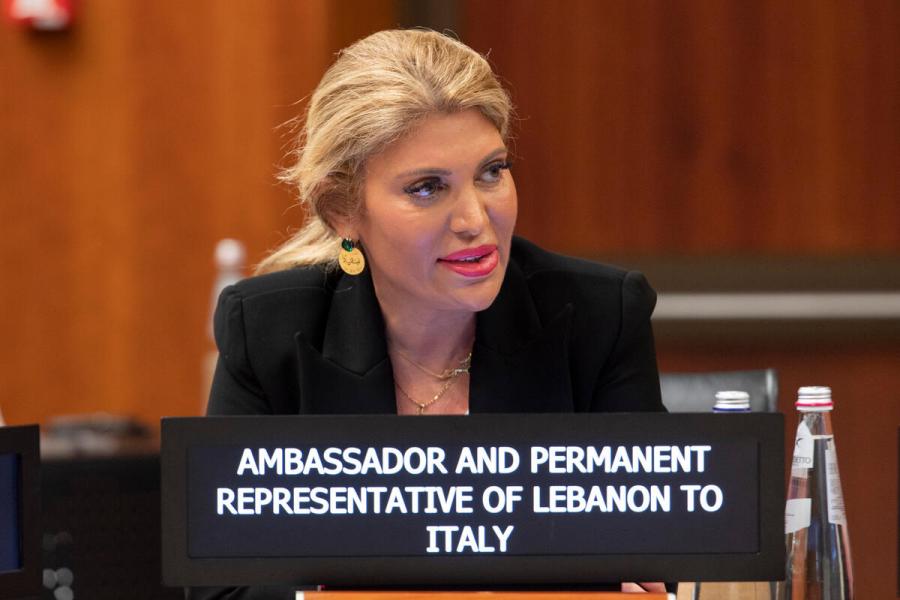From 14 to 17 November 2022 the World Food Programme held a successful Second Session of the Executive Board.
This was the first EB session since 2019 to reconvene around the oval table with increased physical presence while also allowing members and observers to join discussions virtually.
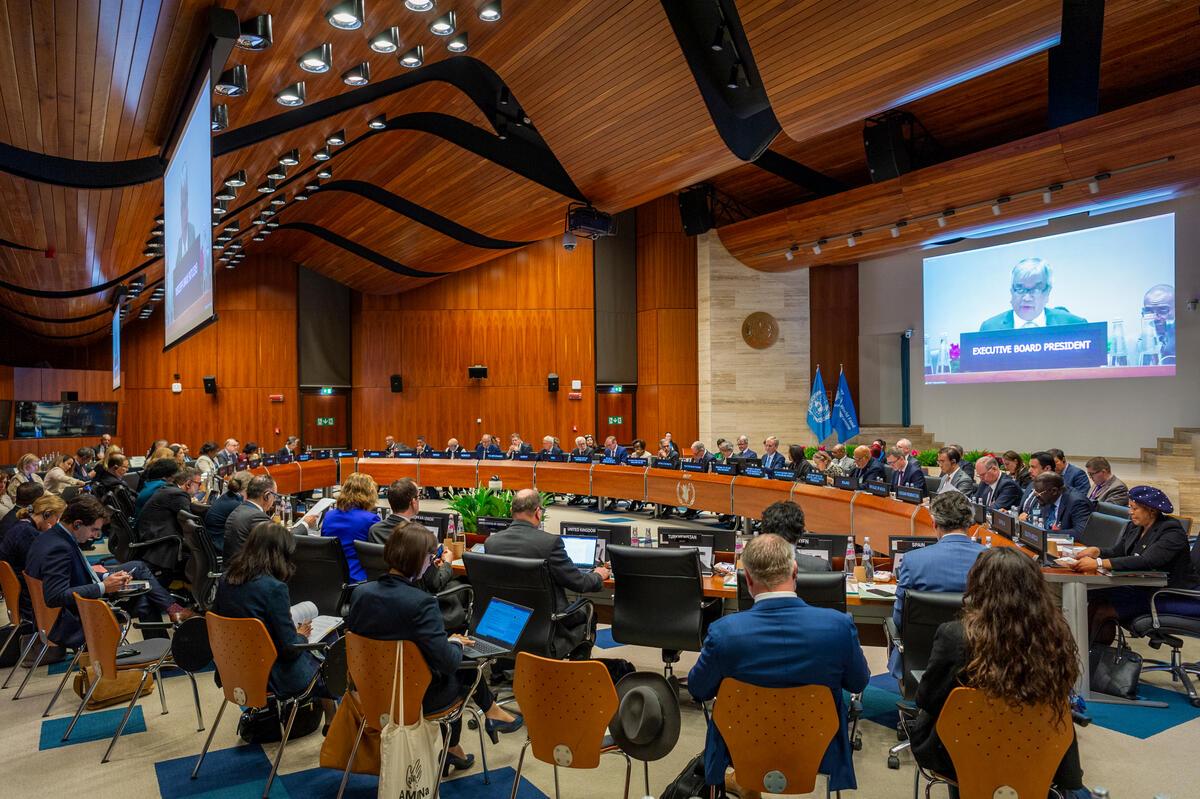
Intervention by H.E. Md. Shameem Ahsan, President of the WFP Executive Board 2022. Photo: © WFP/Giulio d'Adamo
Opening remarks by the Executive Director
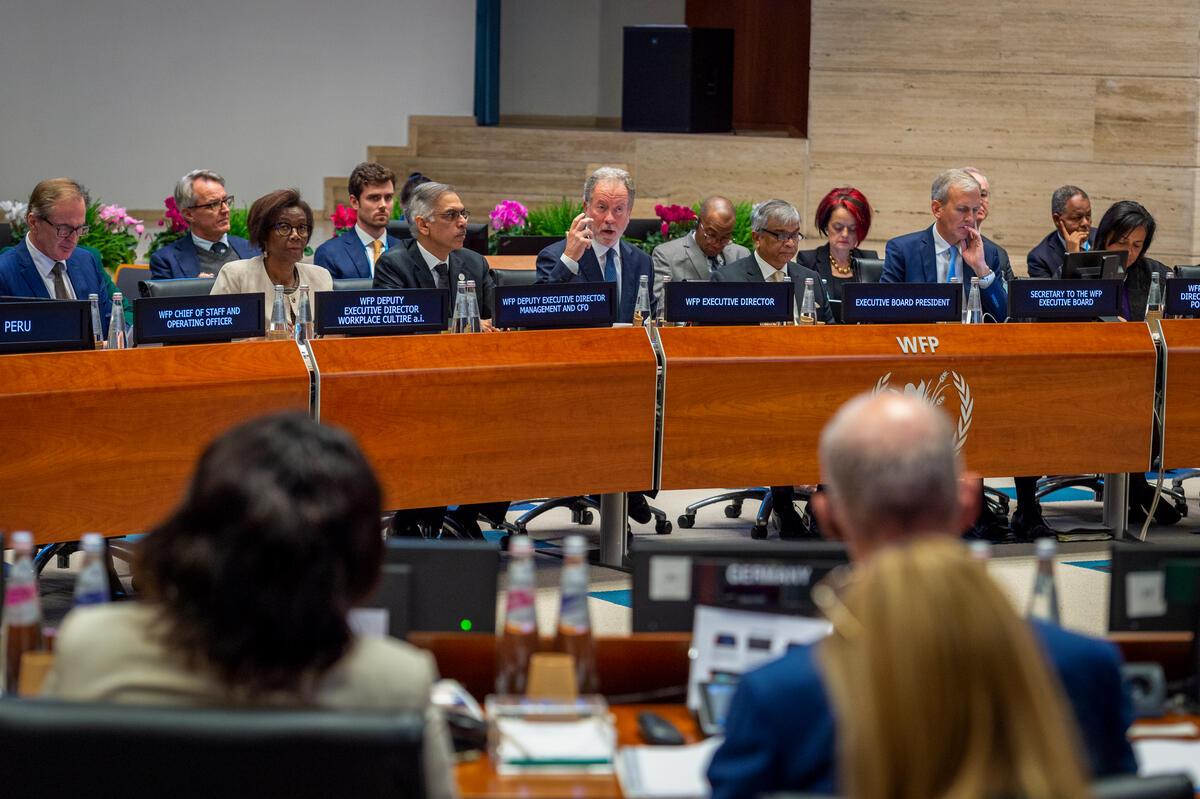
Opening remarks by the WFP Executive Director, Mr David Beasley. Photo: © WFP/Giulio d'Adamo
In his opening speech, WFP Executive Director David Beasley issued an urgent plea to donors and international financial institutions for strategic financing and collaboration to face unprecedented levels of food insecurity and help bring peace and stability around the world.
As Beasley reported to the Executive Board, 349 million people are now marching towards starvation and 49 million people in 49 countries are teetering on the edge of famine. Therefore, currently WFP requires USD 22 billion to target over 130 million beneficiaries.
The ED explained that the ongoing conflict in Ukraine is not only causing food price increases around the world, but it is also having an impact on the availability of fertilizers. The Executive Director added that it is critical to renew the Black Sea Grain Initiative to create a corridor for shipping wheat and fertilizer from this region to global markets.
Beasley also advocated for the urgent need to increase flexible funding to face the current climate emergency and implement resilience activities in highly vulnerable settings. Climate shocks, said the ED, for the first time have caused internal displacement of 23-30 million people -- for example, in countries that have recently seen the devastation of drought, like Somalia, Ethiopia and Northern Kenya.
Following his recent visits to Ethiopia, the ED closed by providing an update on positive developments on the crisis in the northern part of the country where a peace agreement has enabled WFP to have humanitarian access to reach people with critical food assistance.
Special address by the Vice-President of Colombia

Vice-President of Colombia, H.E. Francia Márquez
On Monday afternoon, Her Excellency Francia Márquez, Vice-President of Colombia, joined the Executive Board online and delivered her special address.
H.E. Márquez emphasized that Colombia is suffering an enormous crisis in terms of food sovereignty and self-sufficiency and the Government is therefore adopting measures to recover the country’s food production systems and ensure access to food for the most vulnerable.
Among the issues that severely impact the basic right to food, H.E. Márquez mentioned the lack of facilities and infrastructures to ensure access to safe drinking water, particularly in the rural areas and in the periphery of the country, and the concentration of land ownership. As per this last point, the Colombian Government is working on reforms that call for democratization of land to guarantee that Indigenous people, Afro-descendant communities, and smallholder farmers have land tenure rights. This includes efforts to equally engage women who are often community leaders and family breadwinners.
The Vice-President of Colombia added that the Government is also strengthening the public procurement system by purchasing food from smallholder farmers.
Her Excellency Márquez concluded her speech by saying that the Government of Colombia looks forward to working with the World Food Programme and the United Nations to ensure that the right to food can be upheld and safeguarded.
Key documentation
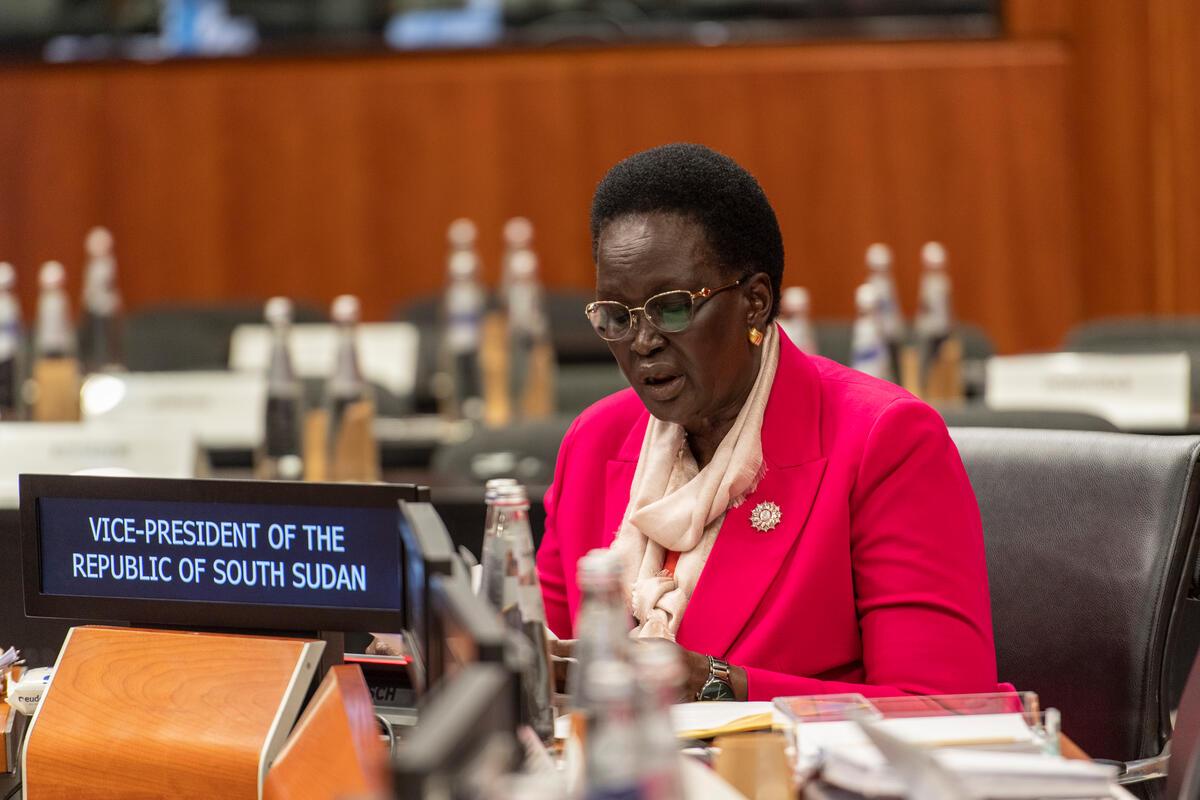
H.E. Rebecca Nyadeng de Mabior Garang, Vice Pesident of South Sudan. Photo: WFP/Rein Skullerud
In this session the Board approved the WFP management plan (2023–2025) with a 2023 programme support and administrative appropriation of USD 576.3 million.
16 new Country Strategic Plans were approved: Plurinational State of Bolivia, Ecuador, Guinea-Bissau, Honduras, India, Jordan, Kyrgyz Republic, Lebanon, Pakistan, Peru, South Sudan, Sri Lanka, Tajikistan, Timor-Leste, Republic of Türkiye and Yemen.
12 Evaluation Reports on Country Strategic Plans were submitted for consideration:
Afghanistan, Plurinational State of Bolivia, Ecuador, India, Jordan, Kyrgyz Republic, Pakistan, Peru, South Sudan, Sri Lanka, Sudan, Tajikistan.
Click here to read all decisions and recommendations or consult this page to access the full set of documentation, supplementary information and photo gallery.
Side events and exhibit
During the course of the week, a number of side events were held on the margins of the Executive Board.
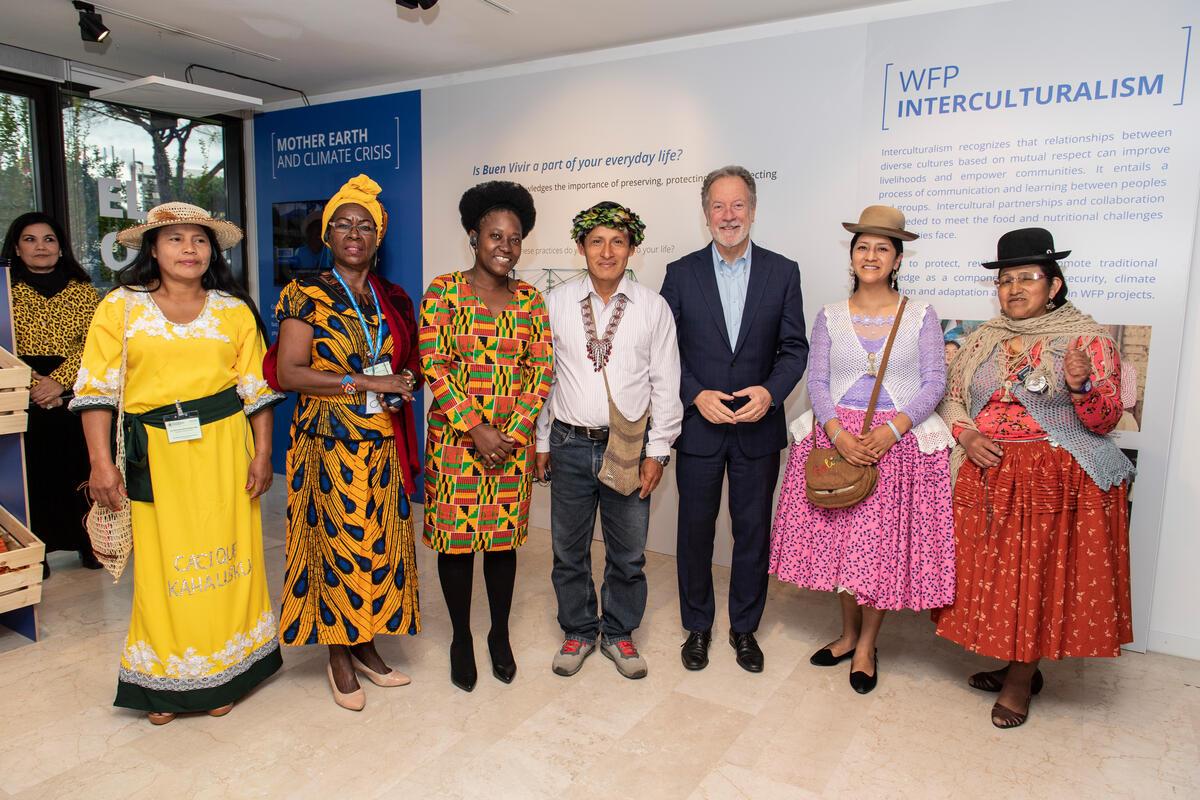
Exhibit on “Indigenous Peoples and Afro-descendant Voices in the Americas”. Photo: WFP/Rein Skullerud
On Tuesday, 15 November, the exhibit “Indigenous peoples and Afro-descendant voices in the Americas” was launched. The exhibit took place on the ground floor of the Red Tower and saw the participation of members of Indigenous and Afro-descendant communities of Latin America and the Caribbean. These guests provided their personal stories and talked about their role in the world’s food systems sustainability and resilience for improved food security nutrition. Among the guest speakers there were Ms Ana Lia Gonzales Magueño and Ms Teodora Magueño de Gonzales, respectively President and Guide climber of the Organization “Cholitas Escaladoras Maya” based in the Plurinational State of Bolivia, Mr Patricio Chumpi Serecam, Community advisor of Wampis Indigenous Community in Peru, Ms Kairen Gutiérrez, Advisor to the Vice-President of Colombia, Inés Morales, President of the Afro-Equadorian Confederation of the North of Esmeraldas and Ms Maria Marcelina Escobar Lugo, Chief of the Pech people in Honduras.
On Tuesday afternoon Board members were invited to join the side event “WFP’s ground-breaking partnership with the Government of Pakistan to reduce stunting”.
The event showcased the long-term partnership between the Government of Pakistan and the World Food Programme.
A panel discussion, moderated by H.E. Naveed Akbar, Director General, Ministry of Poverty Alleviation of the Government of Pakistan, focused on WFP’s contribution to address chronic malnutrition in Pakistan as part of the largest social protection programme in South Asia, the Benazir Nashonuma Programme (BNP). The discussion was followed by a Q&A session with remarks from the floor.
H.E. Shazia Marri, Federal Minister for Poverty Alleviation and Social Safety of Government of Pakistan attended the event as a keynote speaker. Among the panellists, there were some representatives of the WFP Management: Ms Ute Klamert, Deputy Executive Director, Partnerships and Advocacy Department, Ms Valerie Guarnieri, Deputy Executive Director, Programme and Policy Development Department, and Mr Chris Kaye, Country Director, Pakistan.
The side event on Country Capacity Strengthening that took place on Wednesday morning, 16 November, was hosted by Ms Valerie Guarnieri, Deputy Executive Director, Programme and Policy Development Department, and Mr David Kaatrud, Director of Programme - Humanitarian and Development Division.
The panel of speakers provided the EB member states with the opportunity to hear success stories and lessons learned from the field about the approaches under the Country Capacity Strengthening (CCS) policy update that was approved in June 2022.
WFP Country Directors from Colombia, Egypt and India, HQ Directors, and other internal partners such as H.E. Carlos Bernardo Cherniak, Ambassador and Permanent Representative of the Republic of Argentina to the Rome-based UN Agencies, Mr Cesar Giraldo, Manager of the National Program for the Fight Against Hunger, Presidency of the Republic of Colombia, and Mr Alberto Lizzi, Policy Specialist, Quality Programming, UNDP, highlighted key challenges and achievements of the CCS work.
On Wednesday afternoon, there was the side event “The Economic Impact of WFP’s Operations, Assessing the Emerging Evidence from East Africa”.
The event, sponsored by the Regional Bureau for Eastern Africa, presented the results and key findings of the new Local Economy-wide Impact Evaluation (LEWIE) study conducted by the University of California Davis to better understand the direct and indirect effects of WFP’s supply chain and CBT interventions in this region.
Professor Ed Taylor from the University of California Davis explained how WFP expenditures can affect income, production, GDP and employment rates across East Africa and how the effects of supply chain and CBT interventions highly depend on the structure of the economy of hosting countries, in particular the availability of labour and capital to support increased production.
Among the participants was Her Excellency Jackline Yonga, Ambassador and Permanent Representative of Kenya who provided her appreciation of the study and WFP’s work in Kenya.

